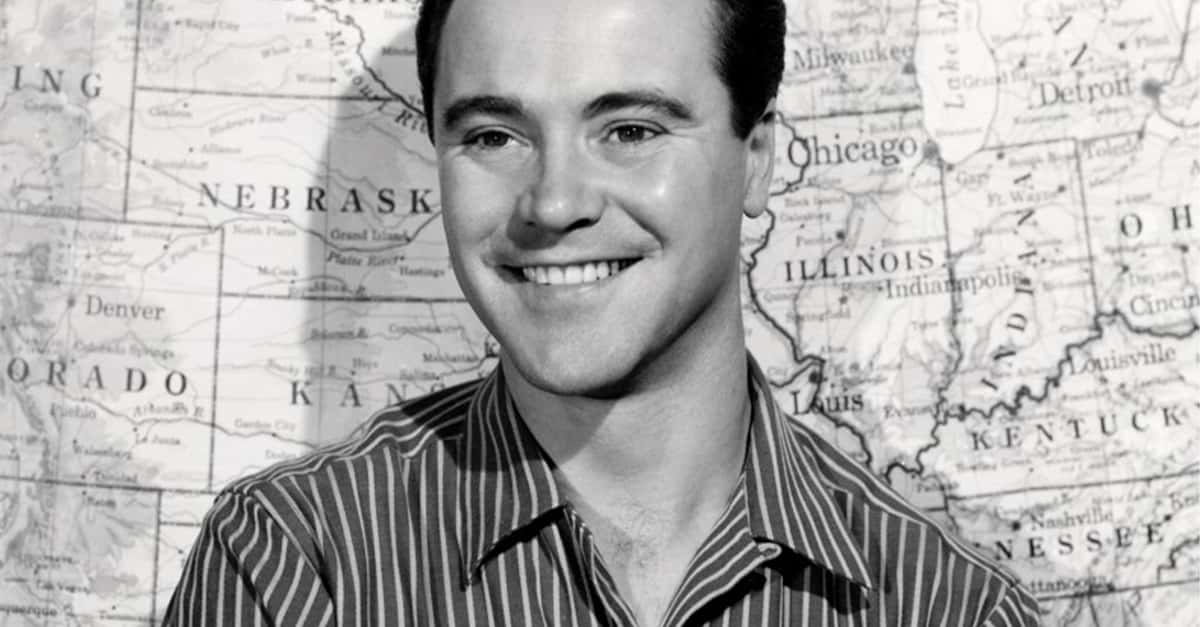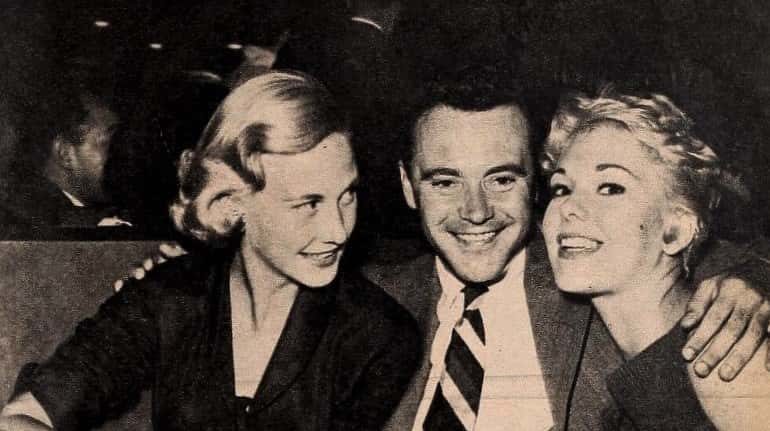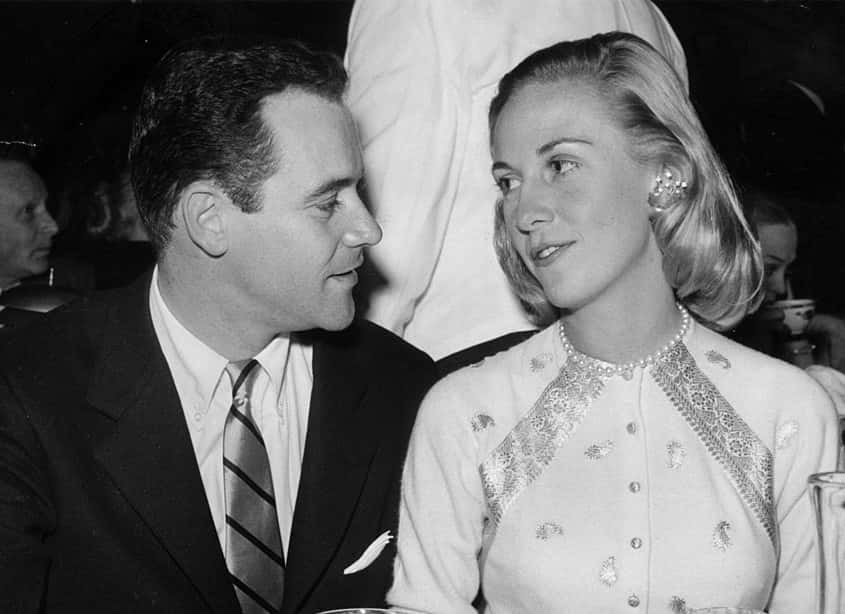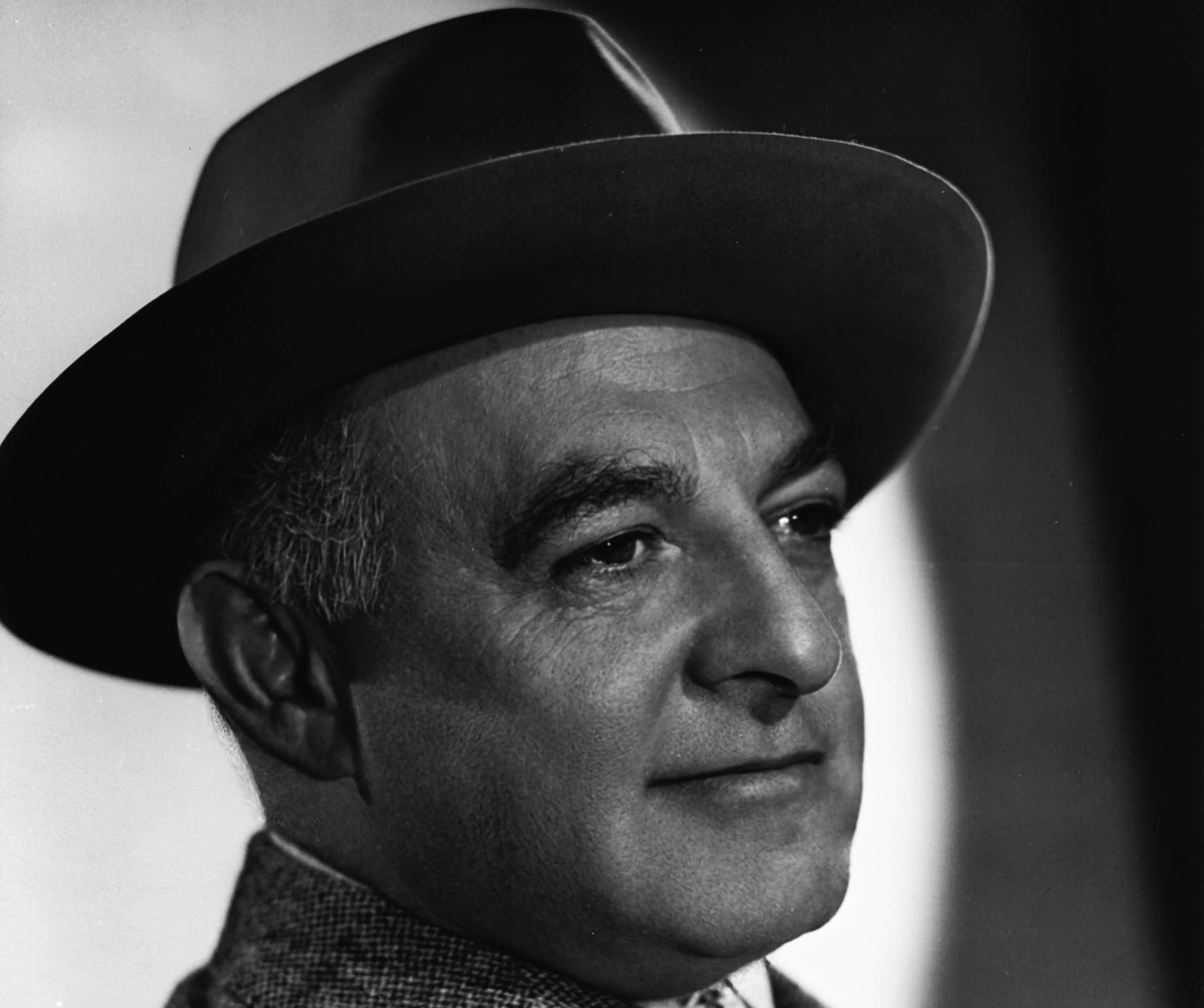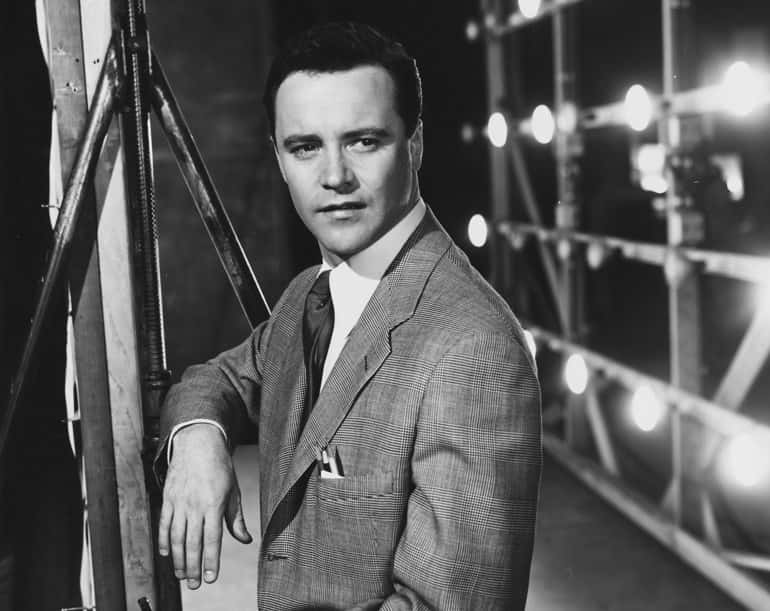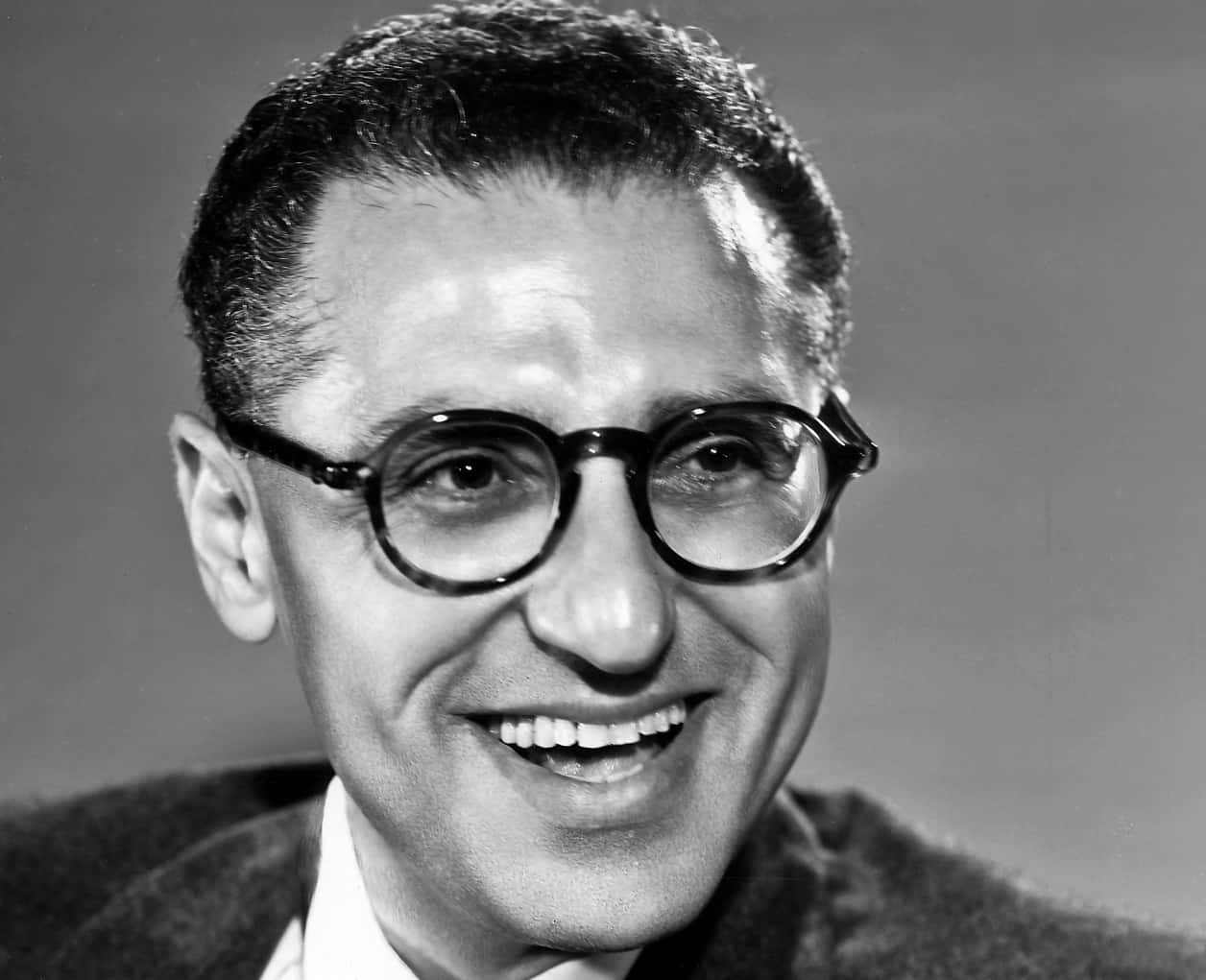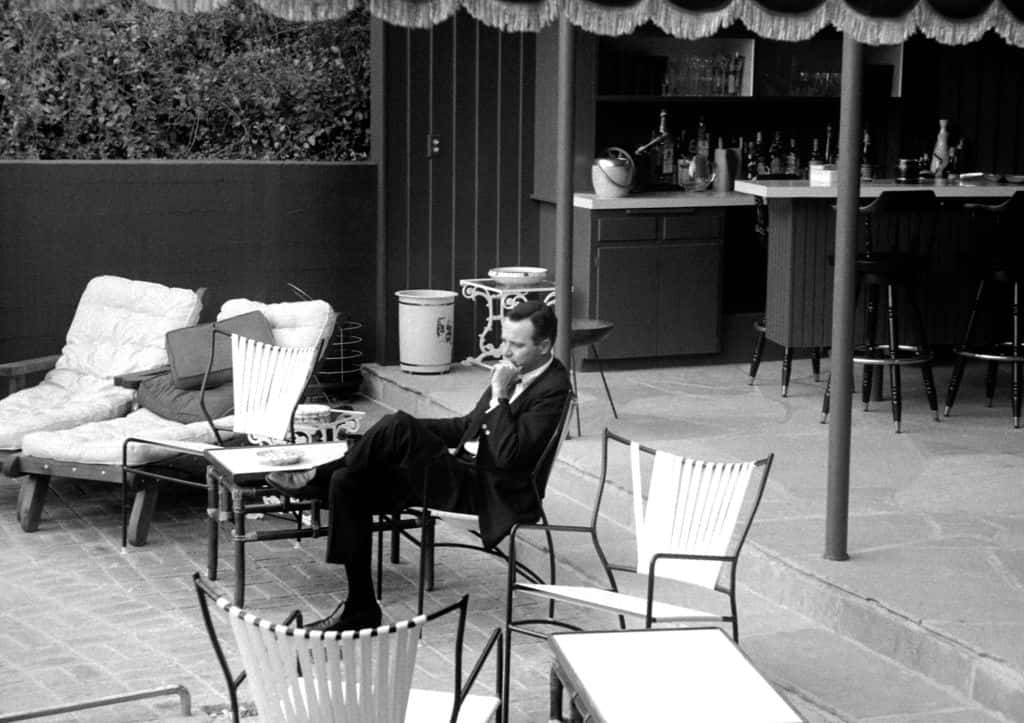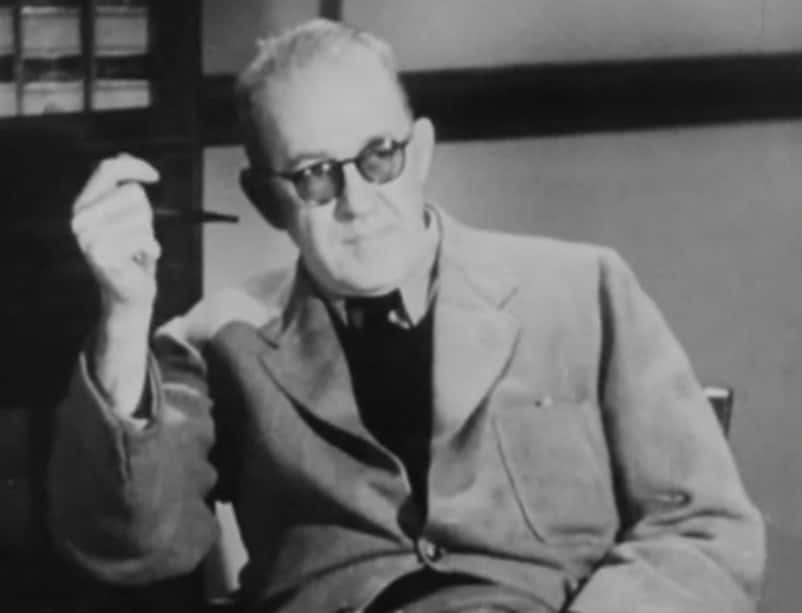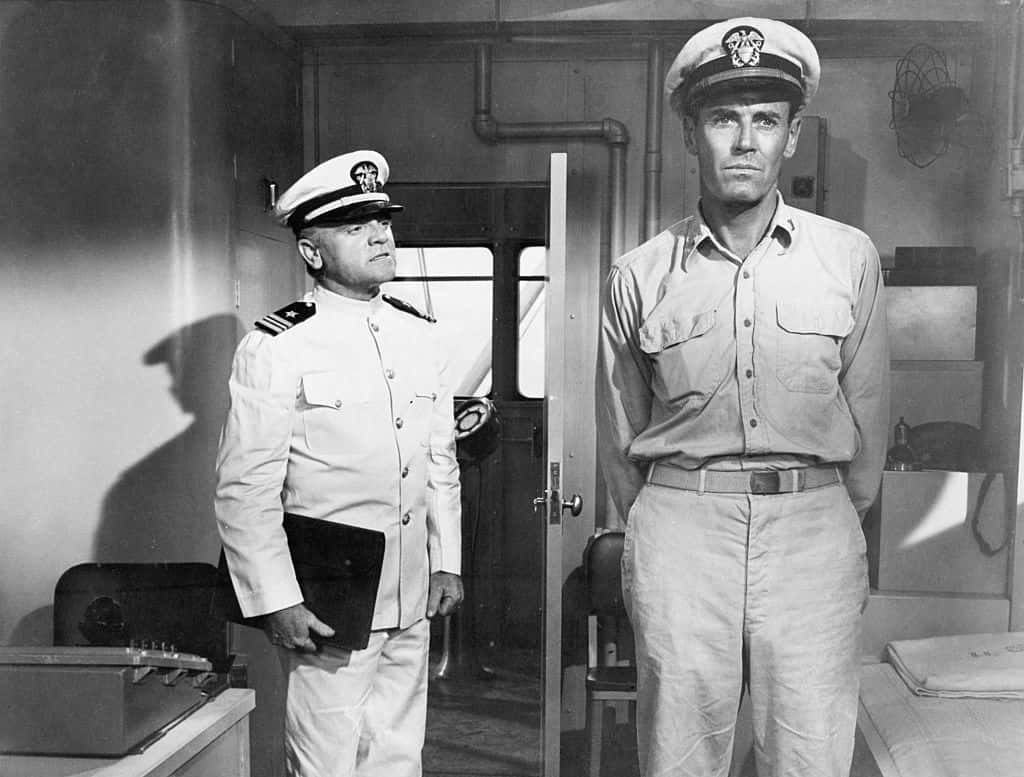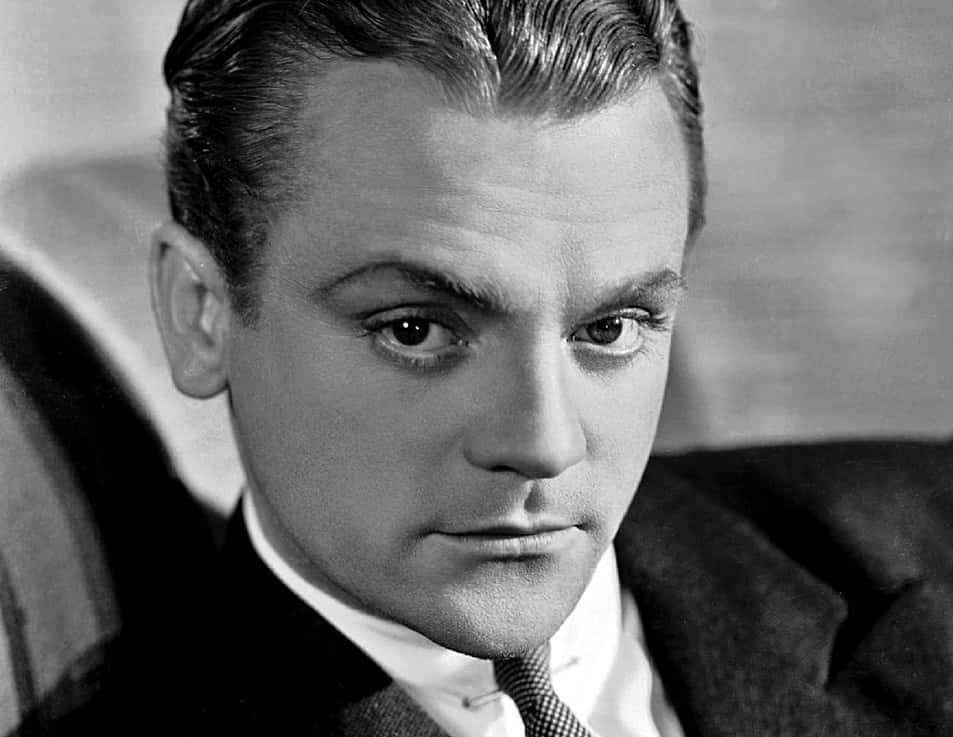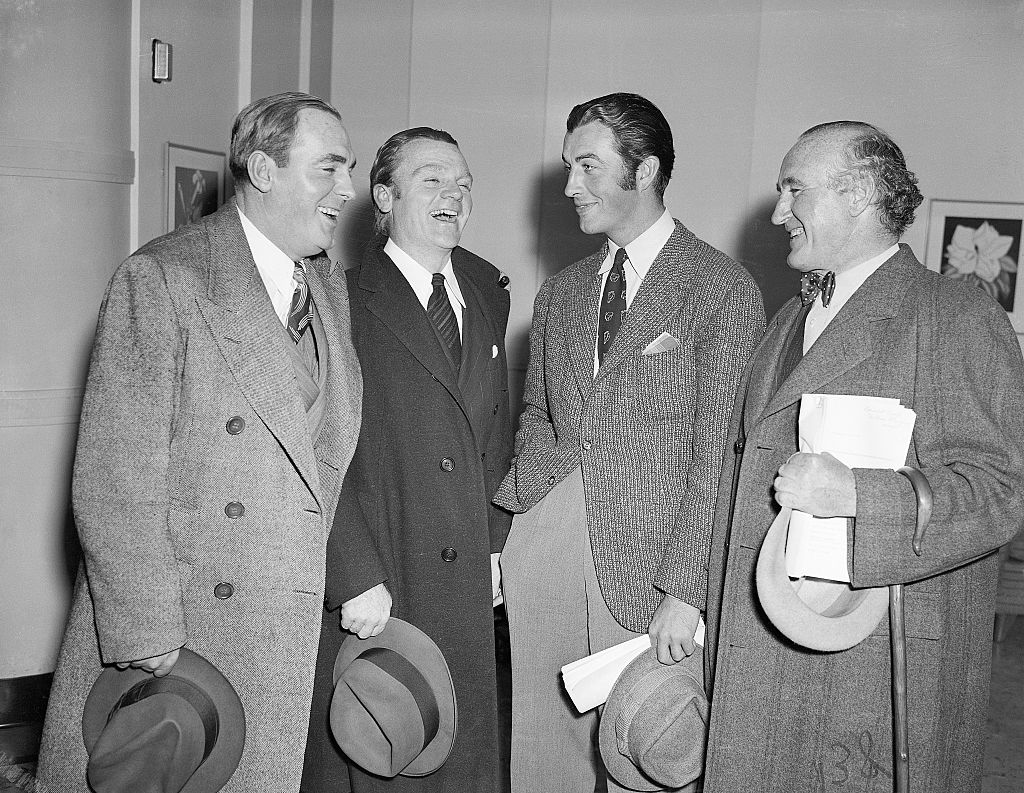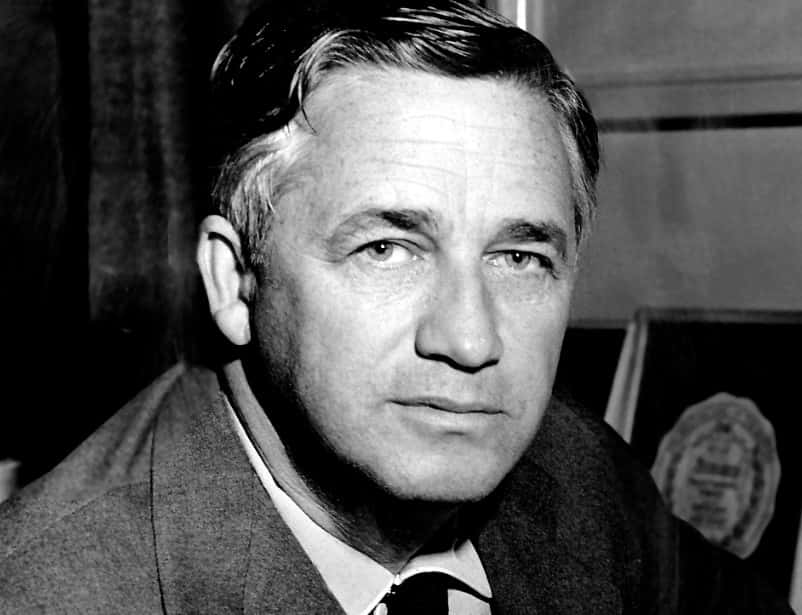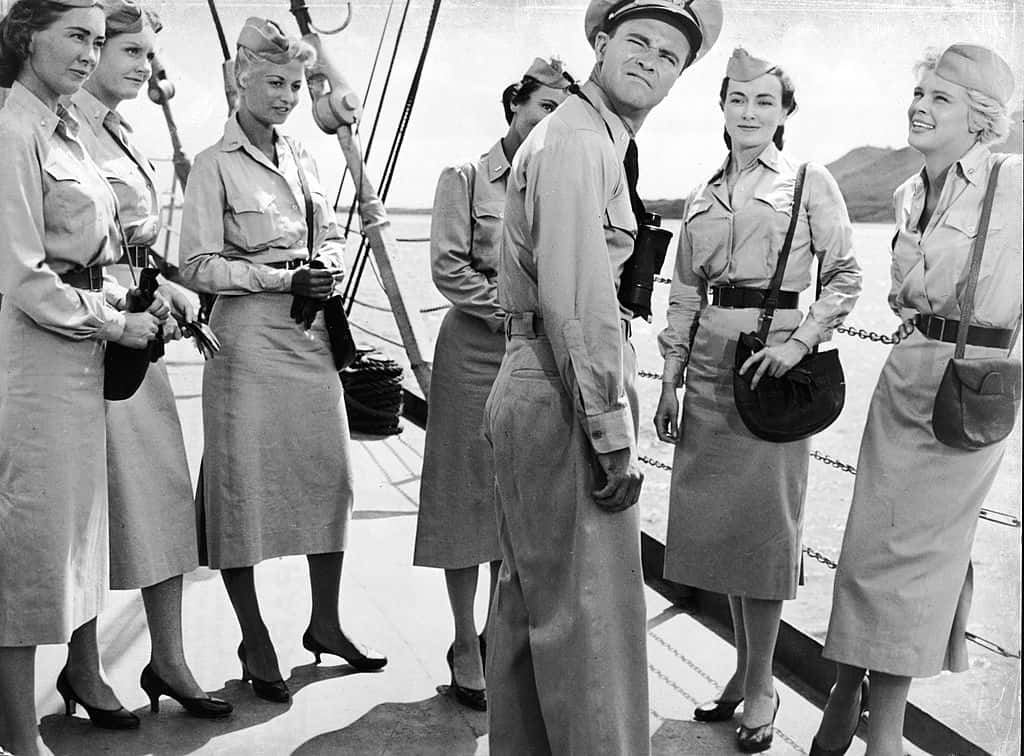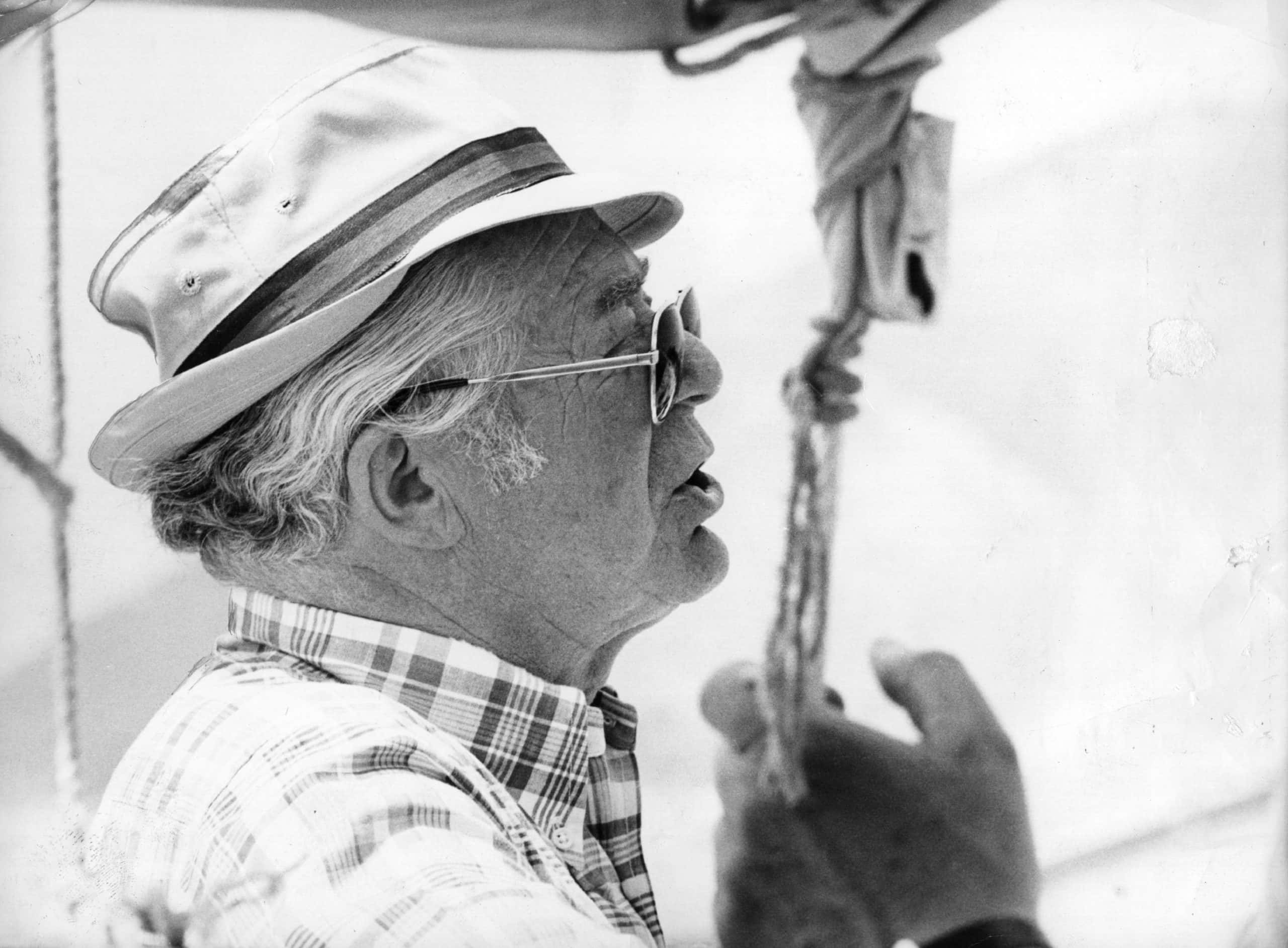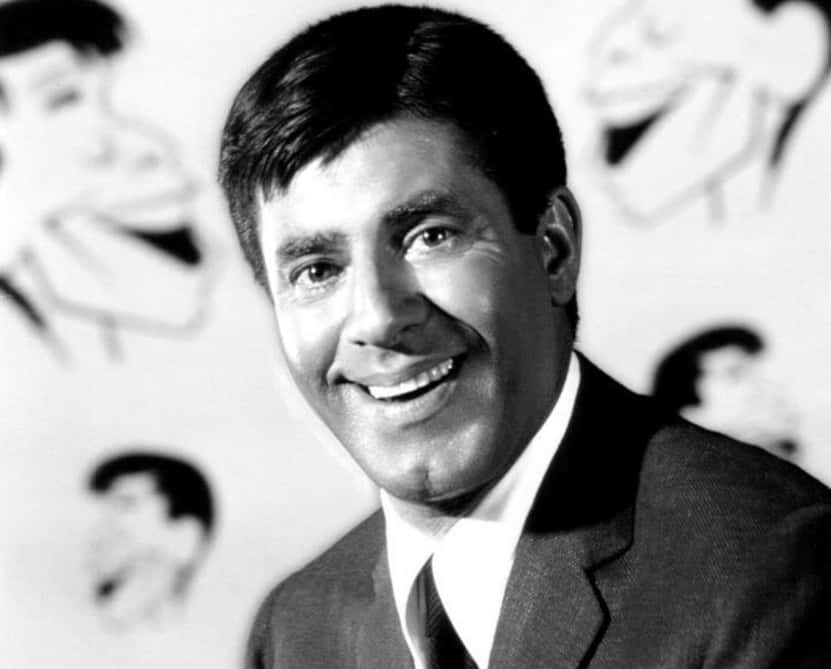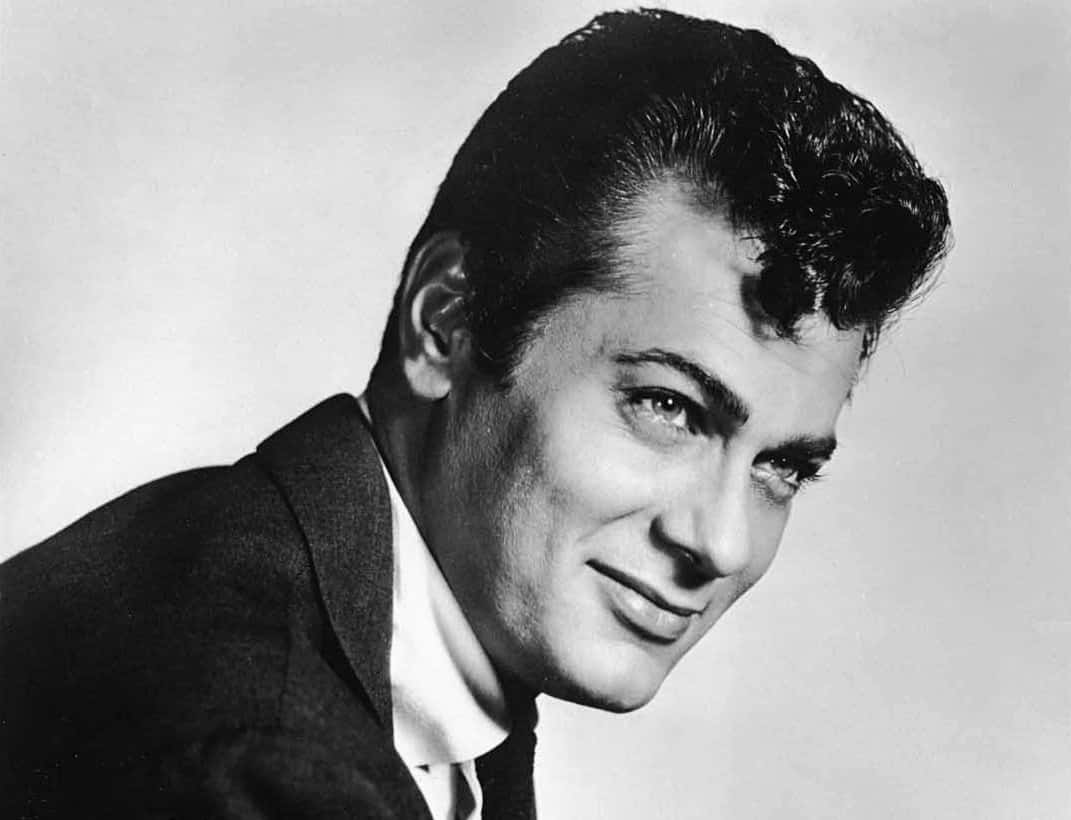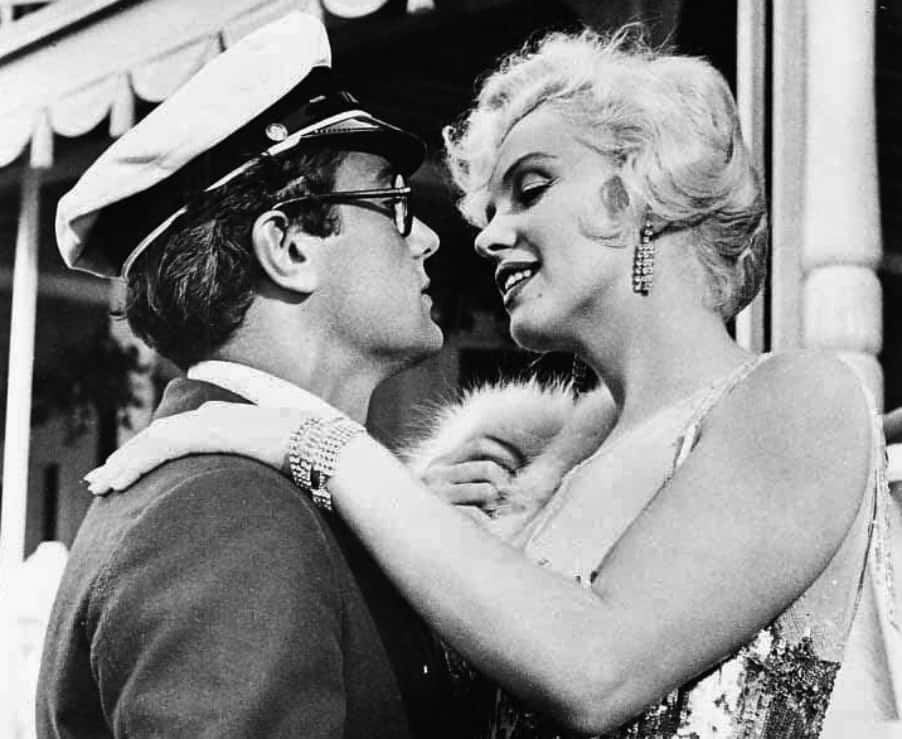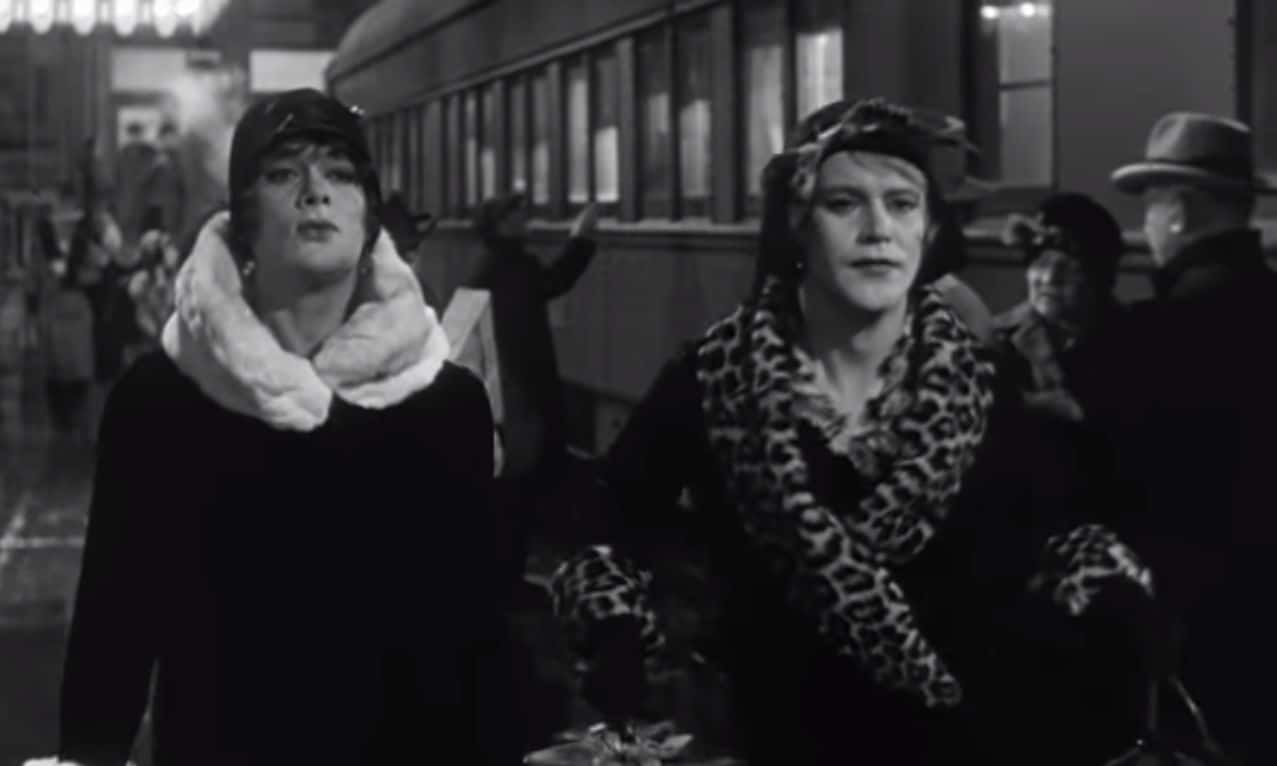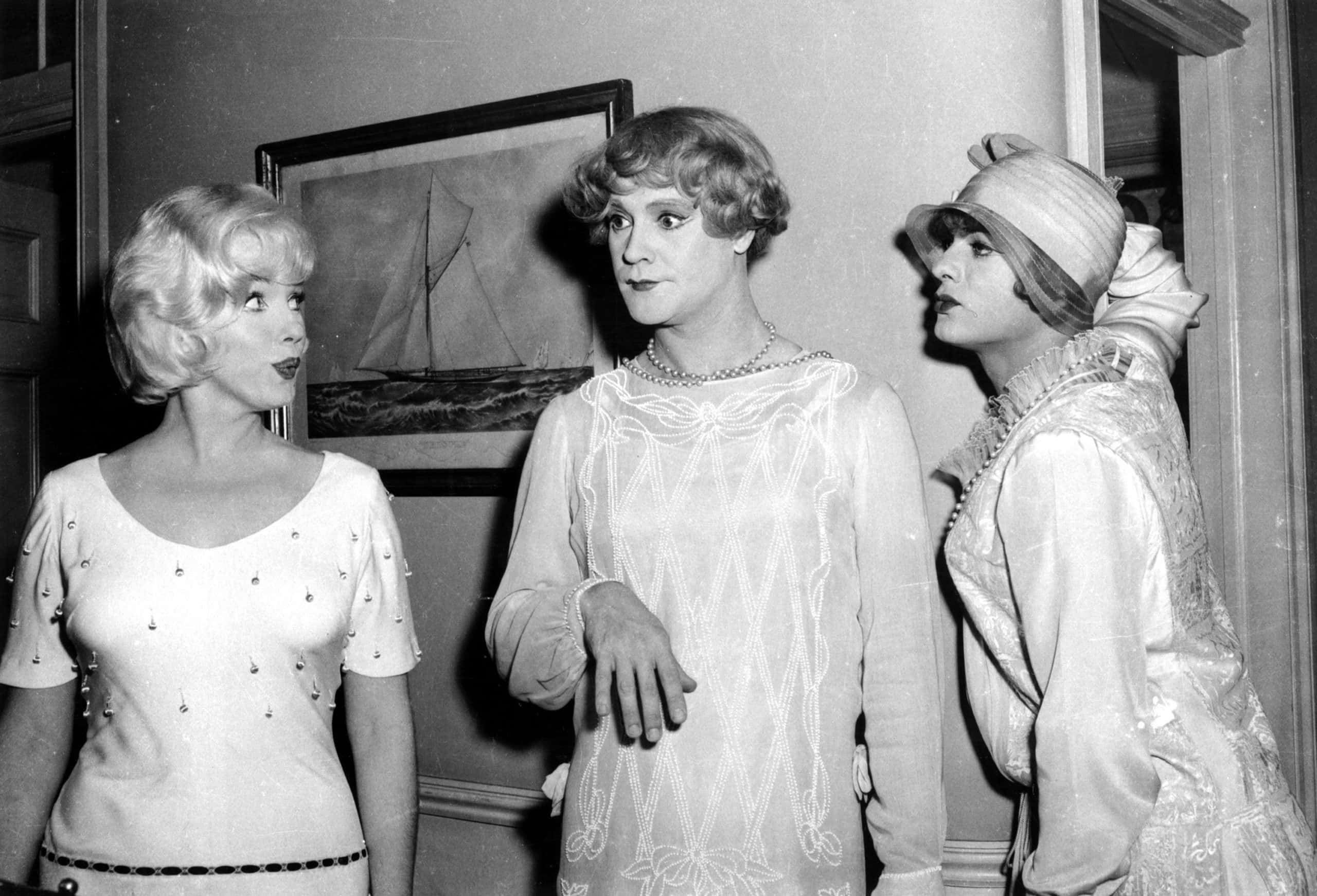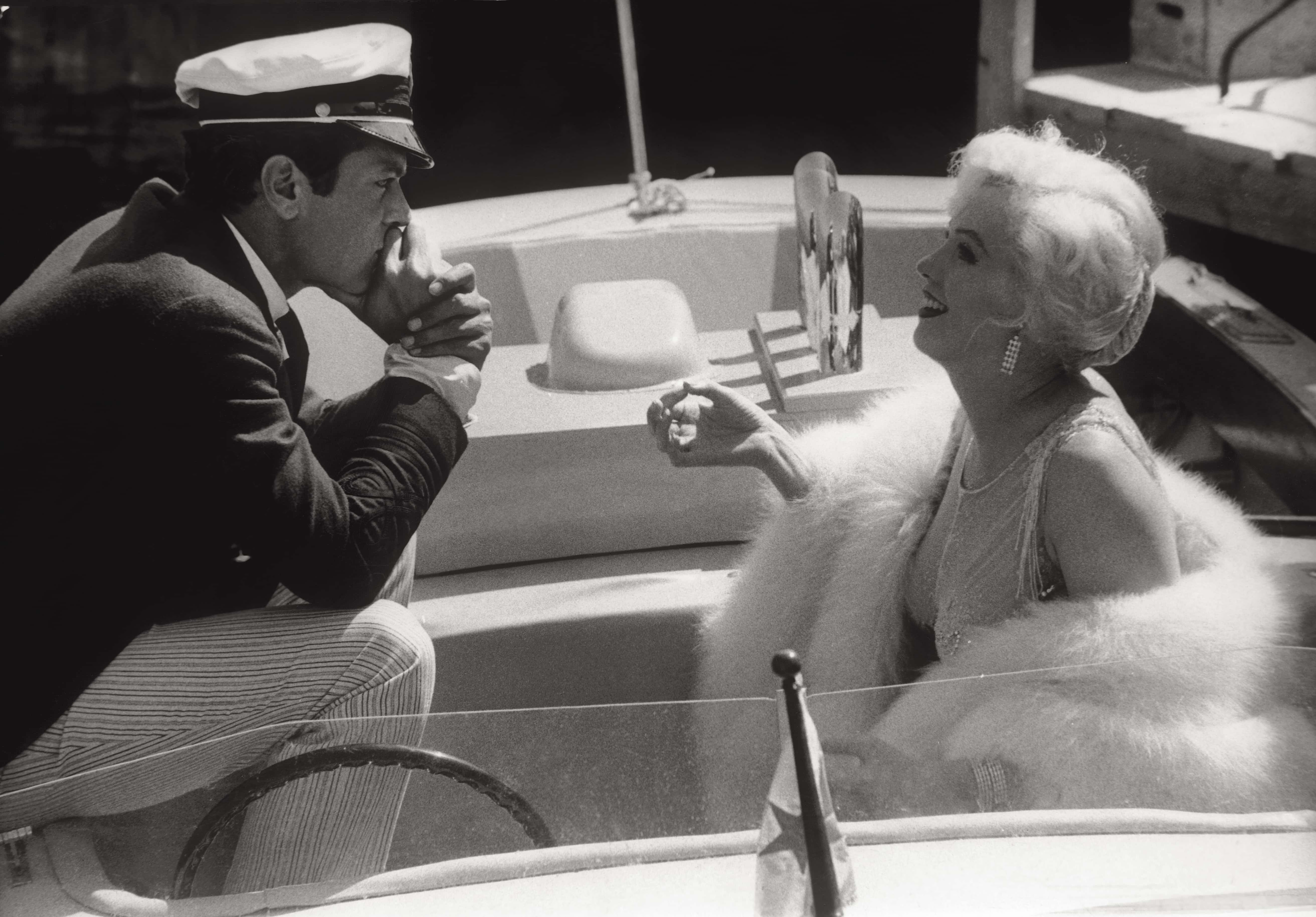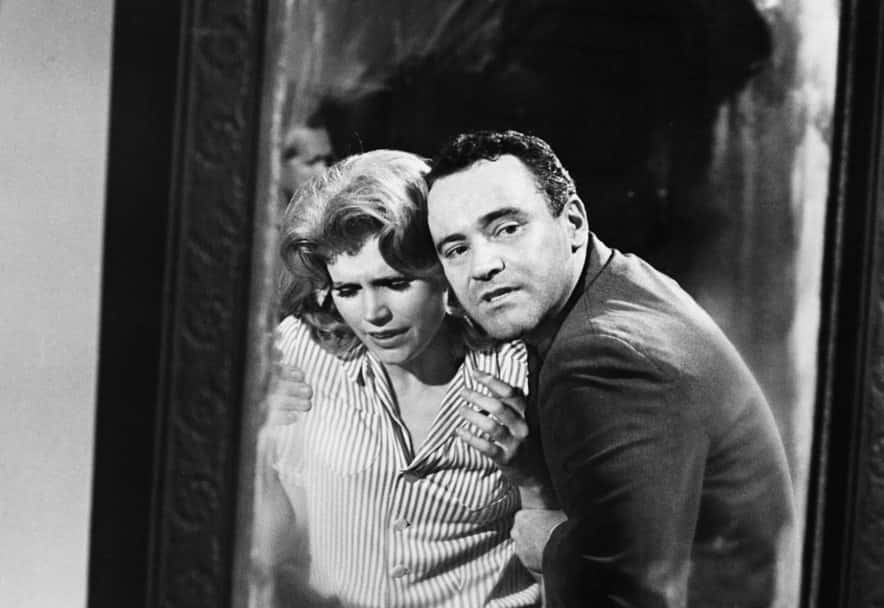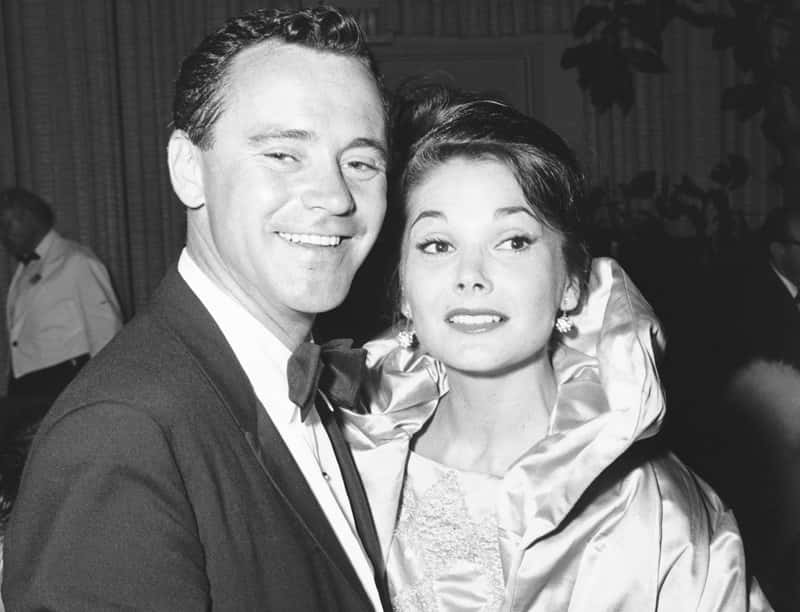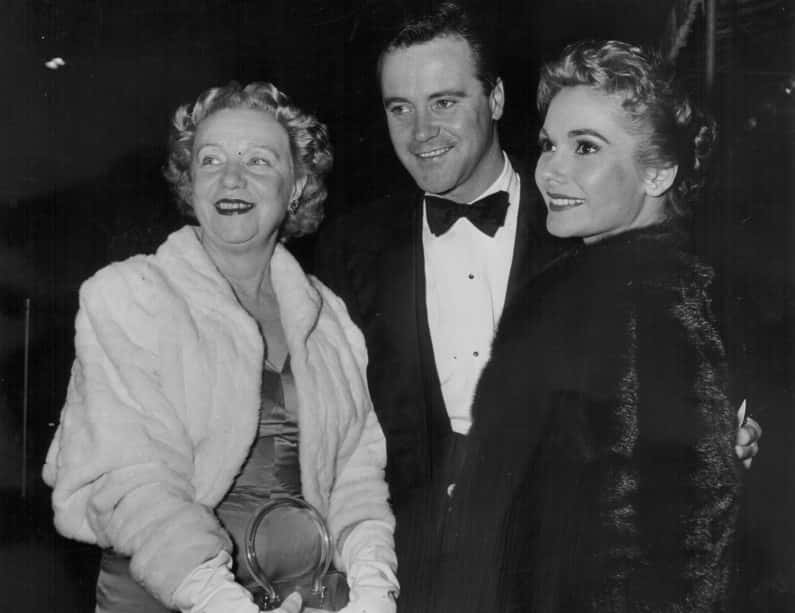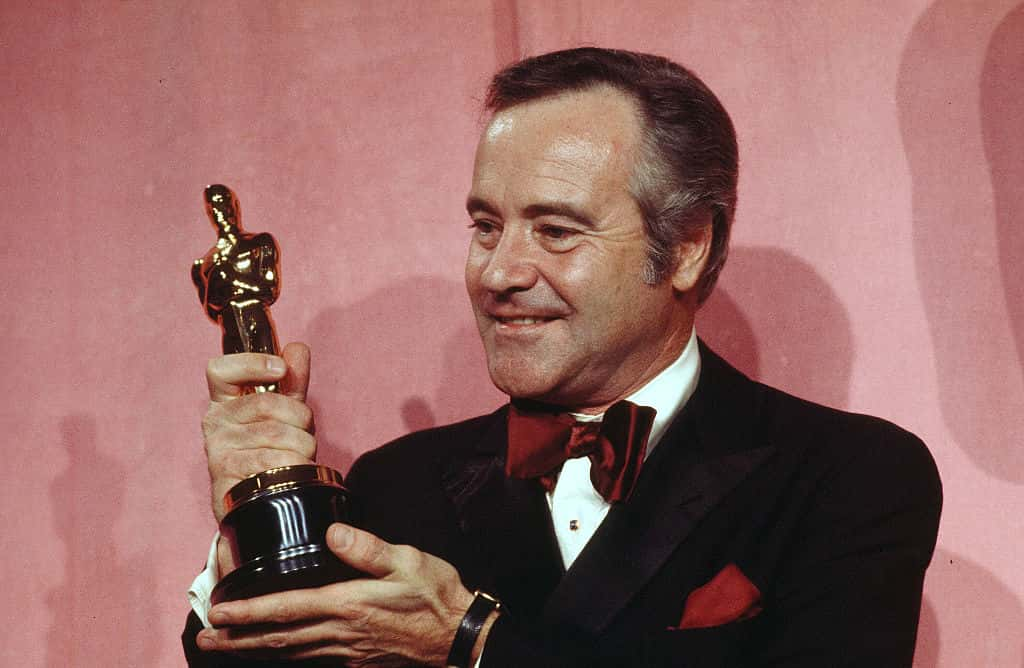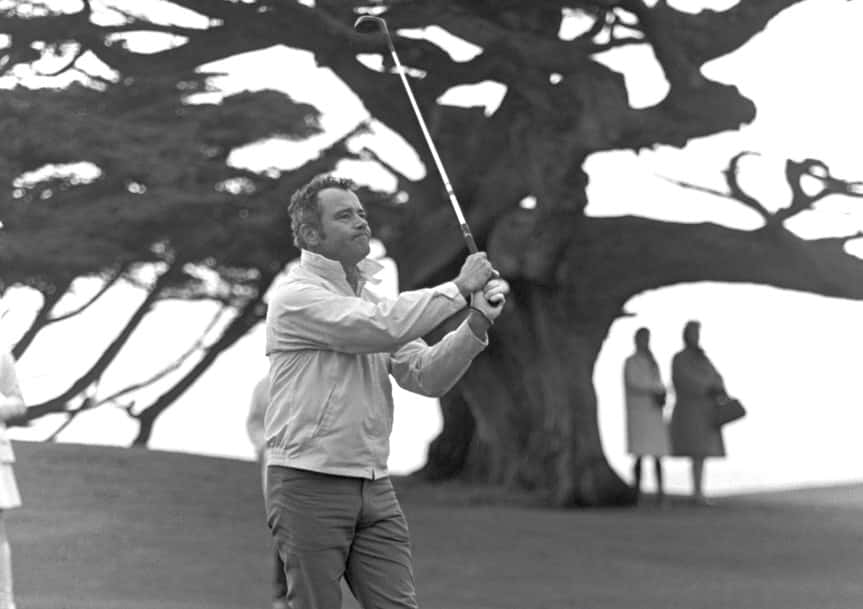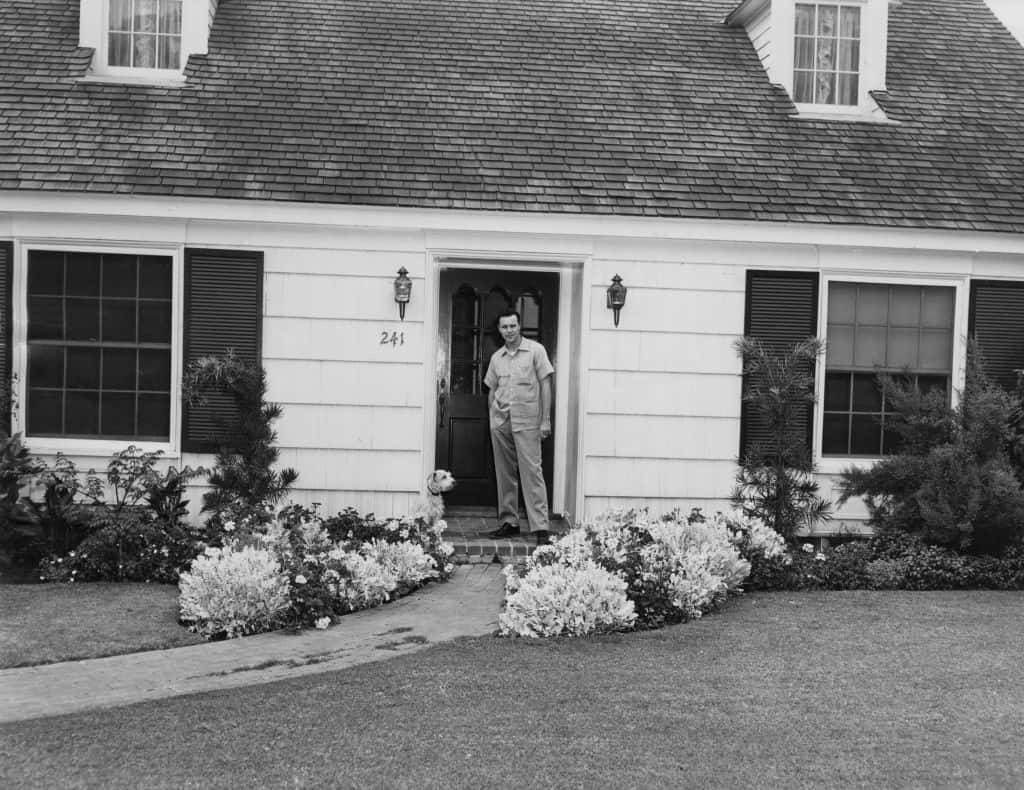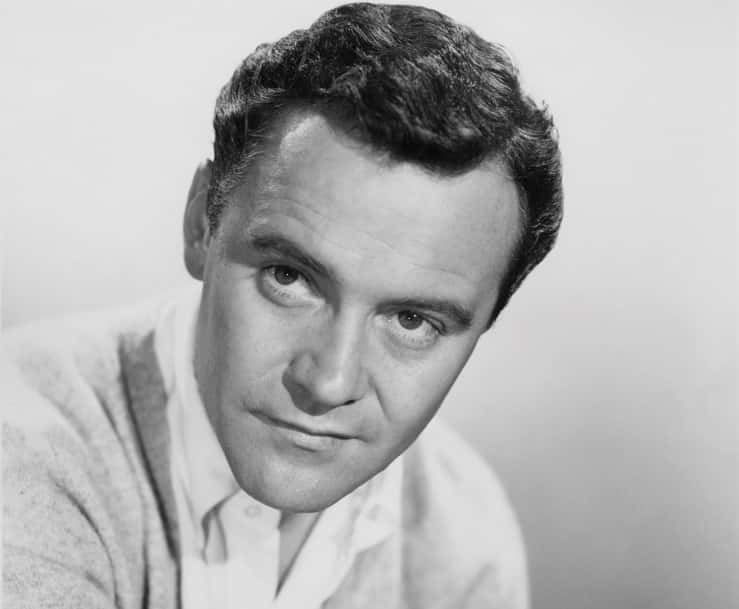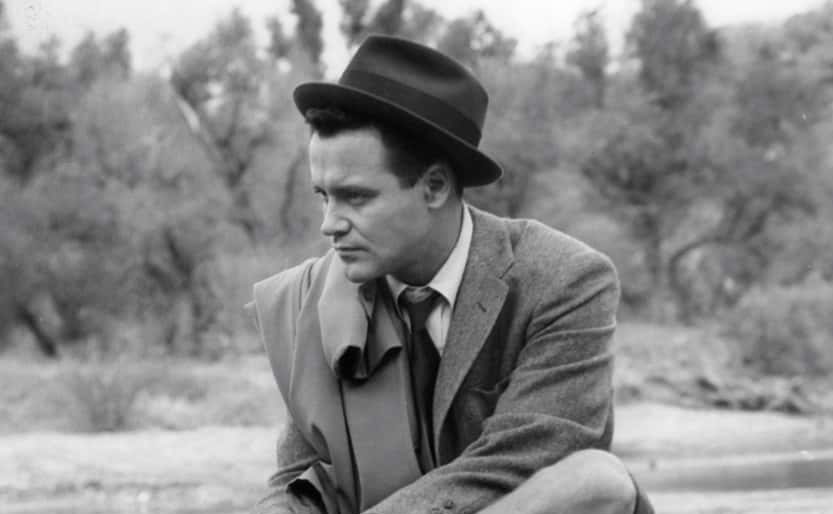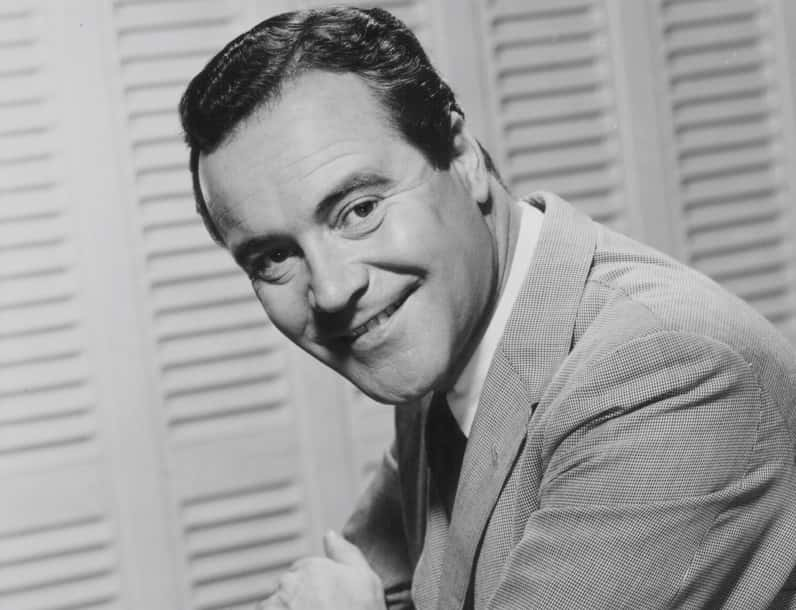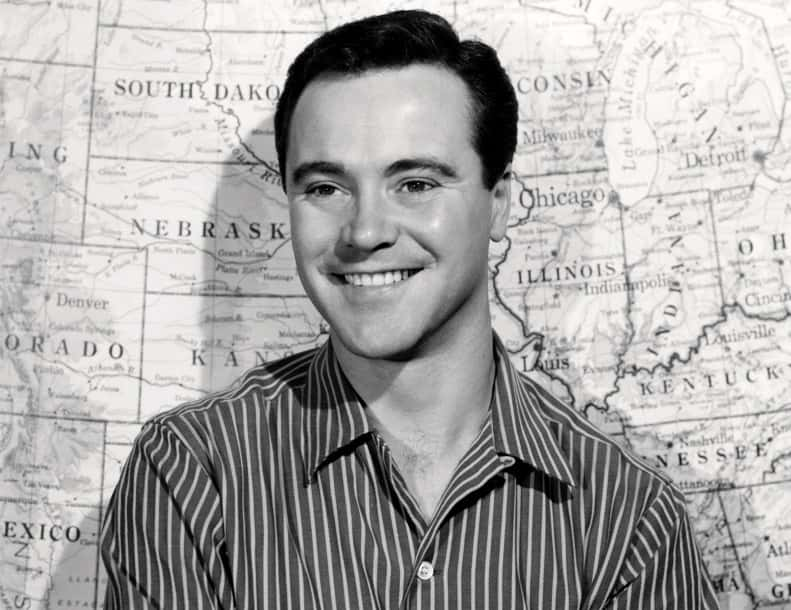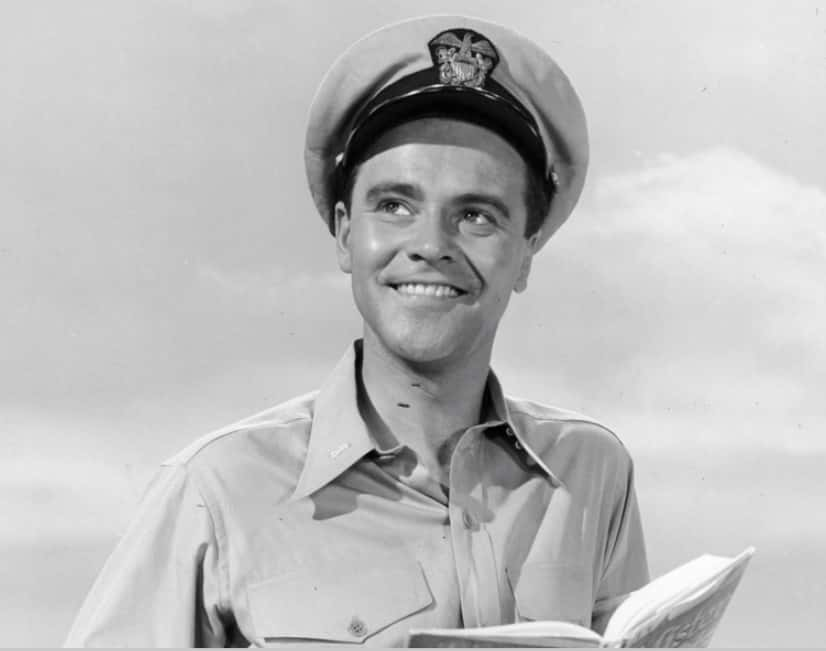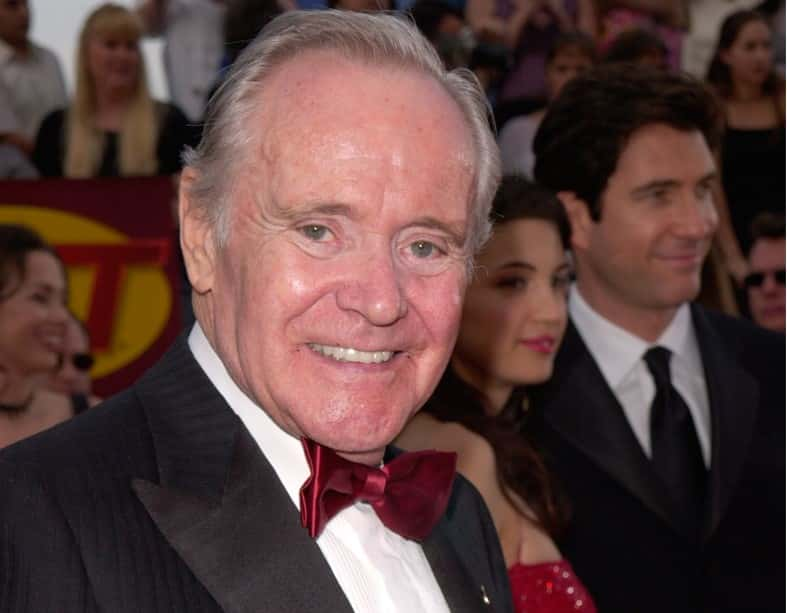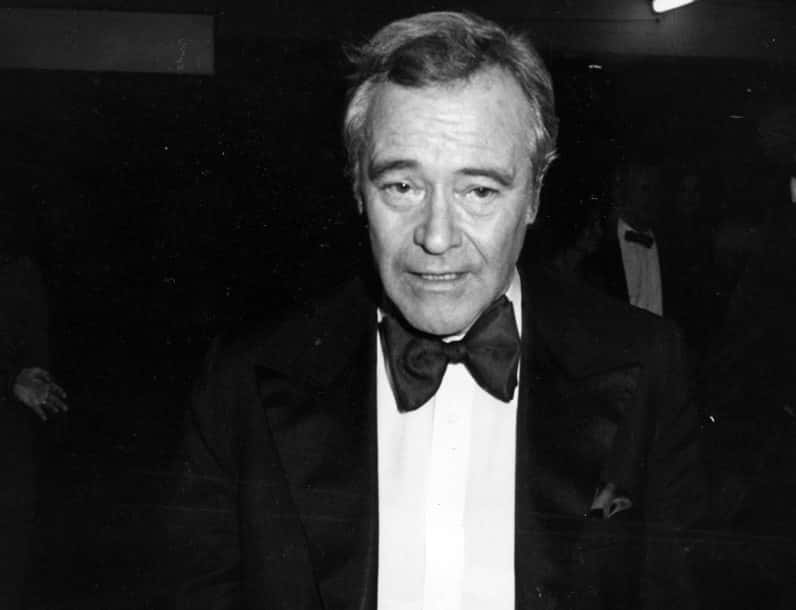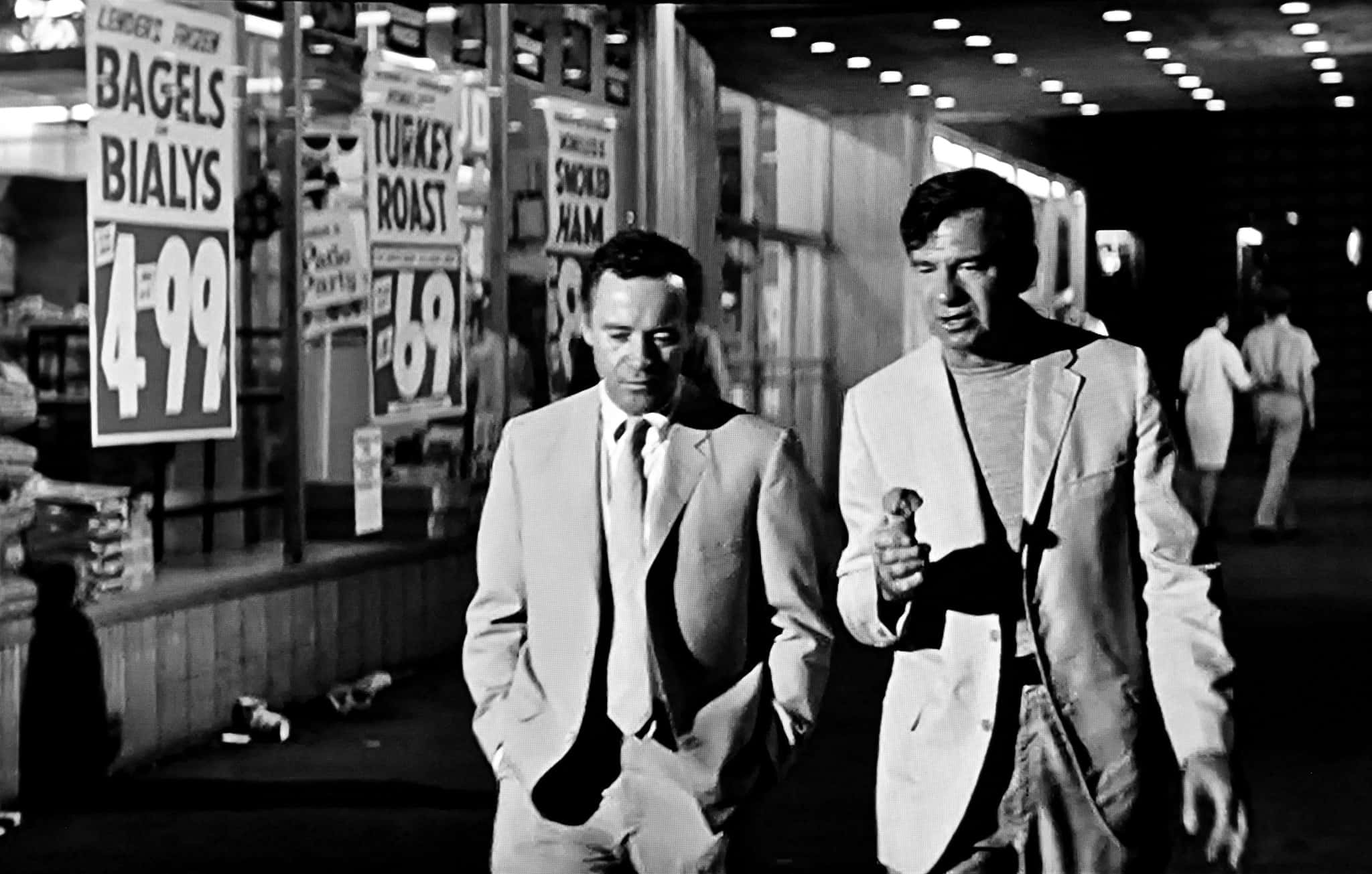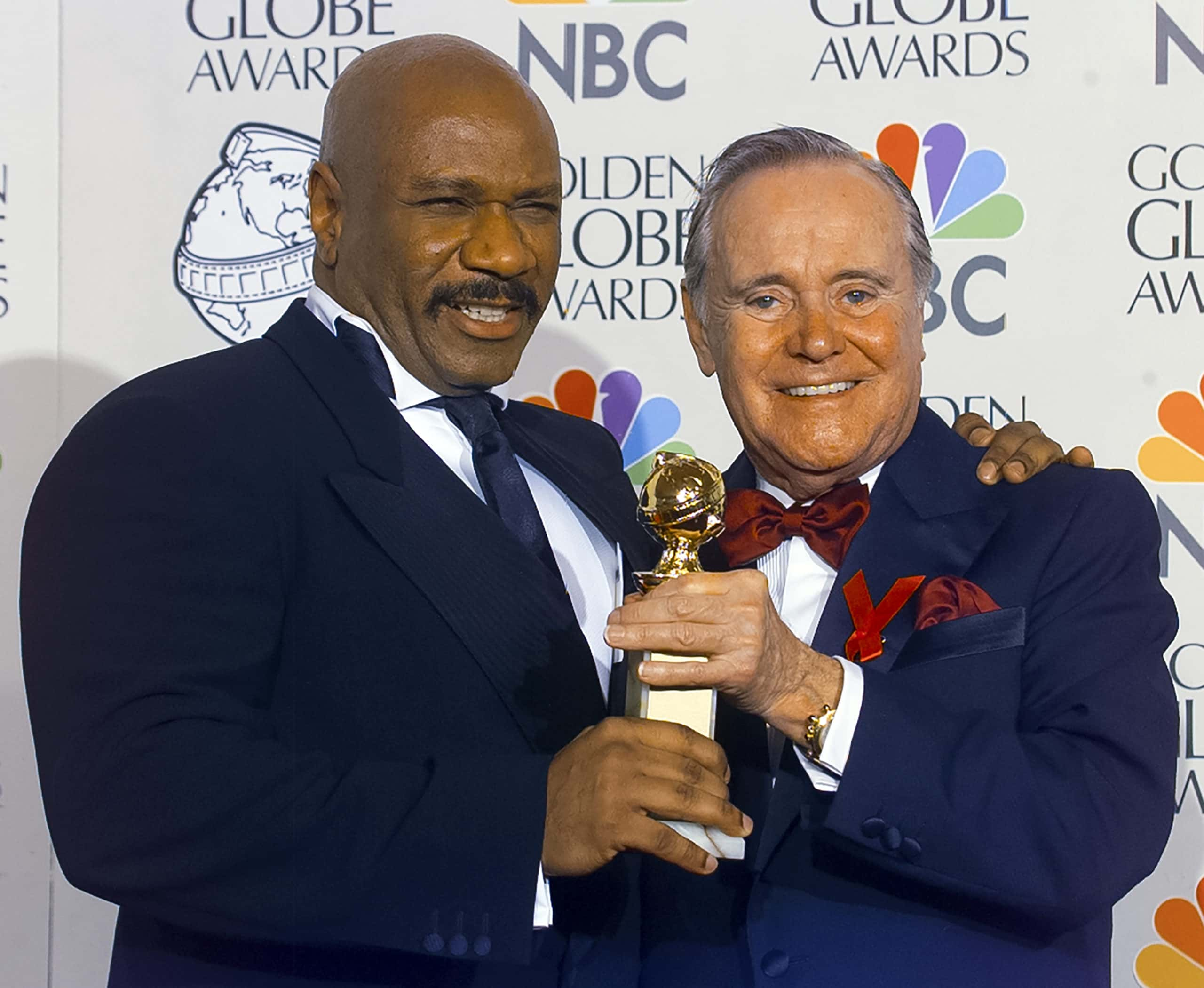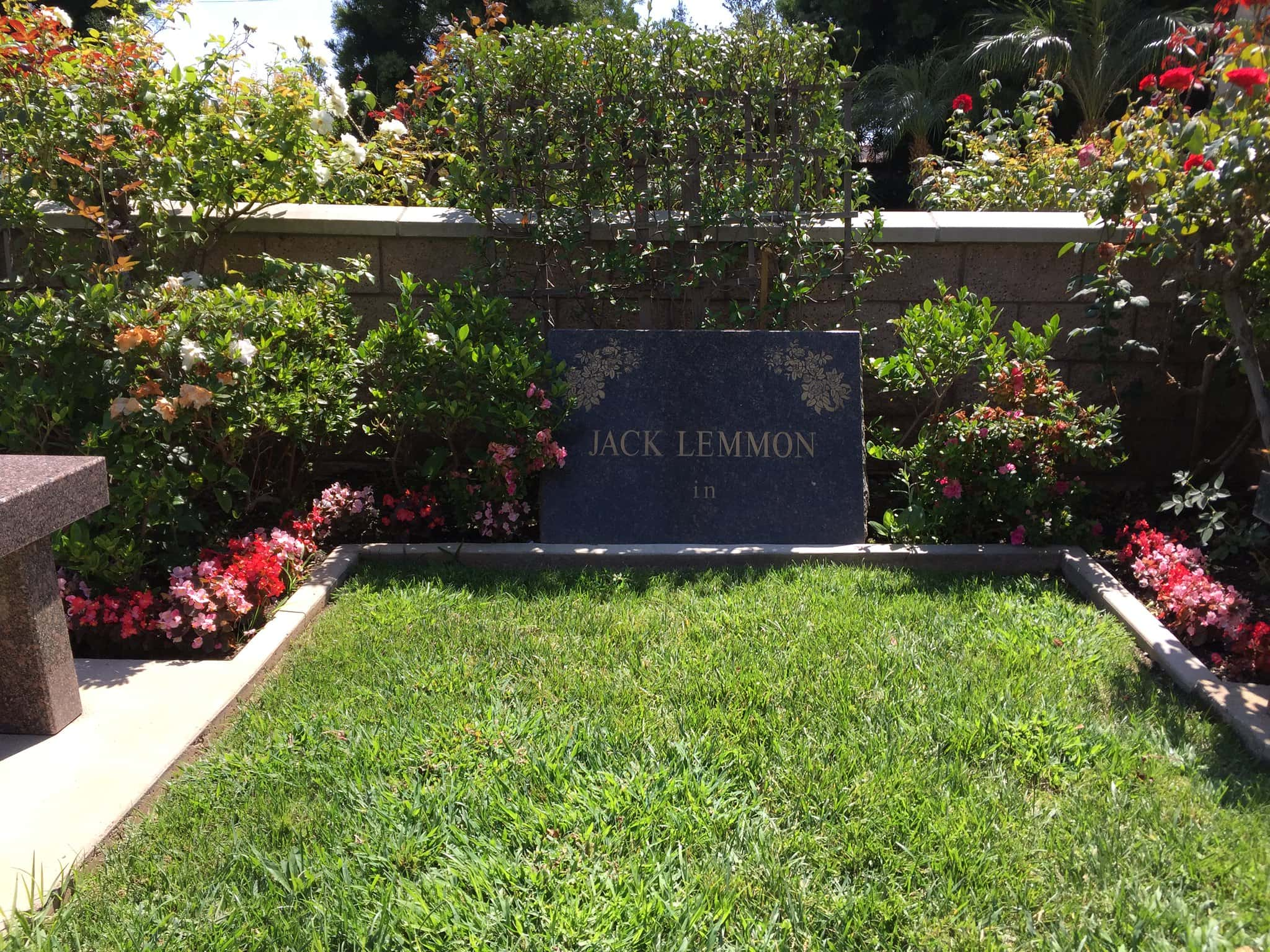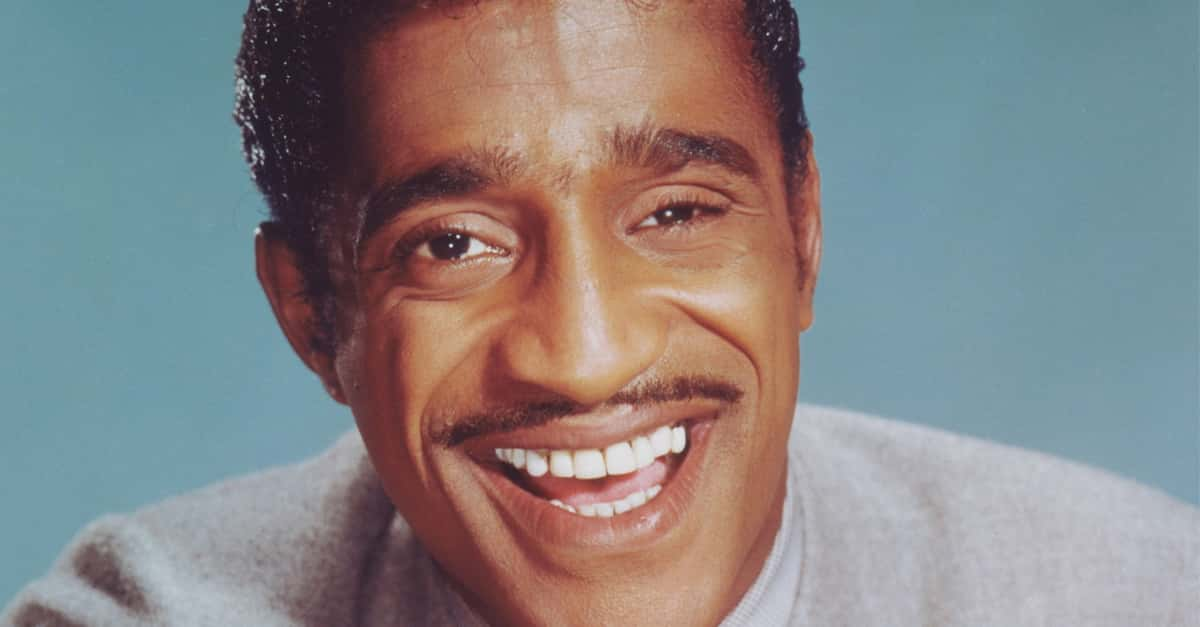Jack Lemmon was a jack of all trades. He could do it all: comedy—slapstick and romantic—and hard-hitting dramas. Then there were his eyes, which showed a vulnerability that made audiences want him to succeed—no matter what craziness he was up to. And speaking of craziness: here’s Lemmon’s life, one fact at a time.
1. He Was Early
Jack Lemmon’s birth sounds like the inspiration for a comedy sketch. His pregnant mother Millie was playing bridge and, though she felt some pain, couldn’t tear herself away from the cards. Eventually, she realized the pains she was feeling were labor pains—even though she wasn’t due for two months. She made a quick trip to the hospital—but not quick enough.
She got only as far as the elevator in Newton-Wellesley Hospital. And then it all happened very fast.
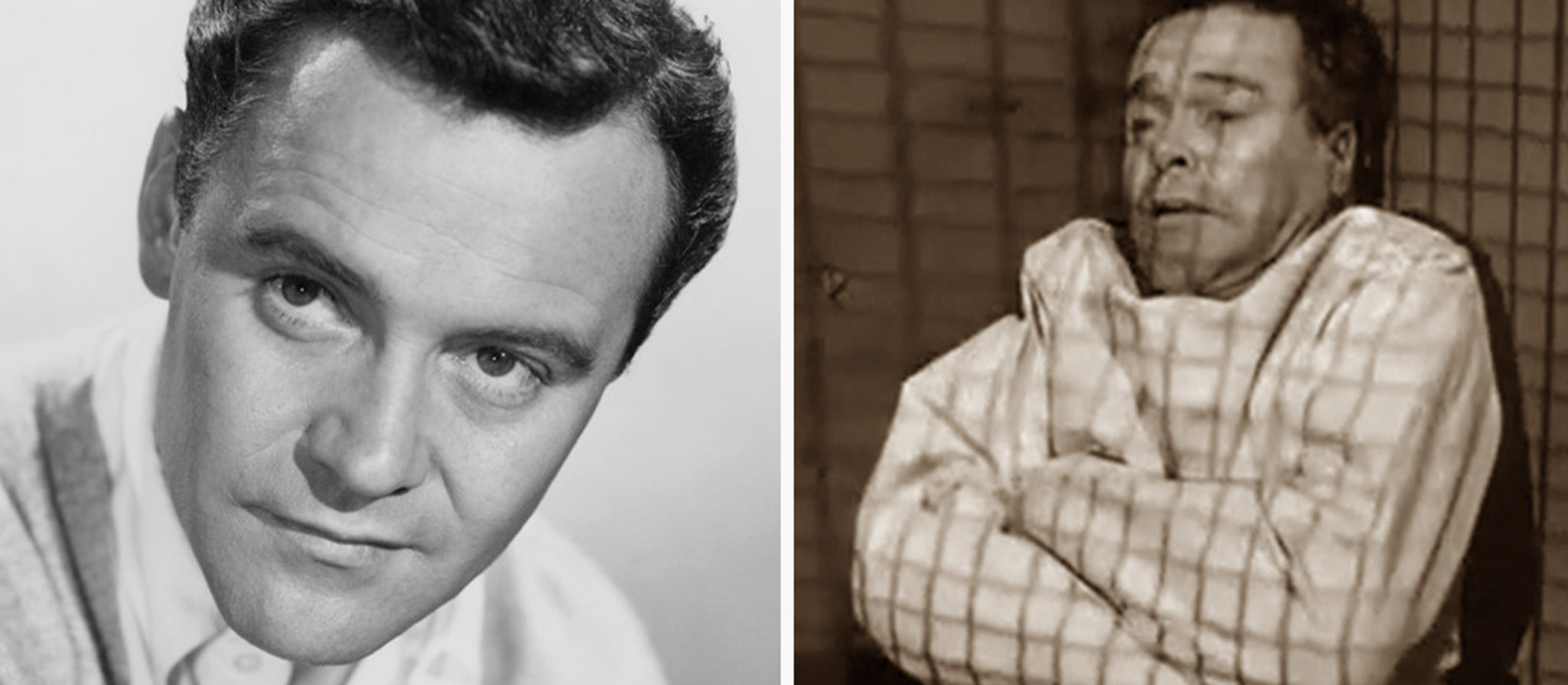
2. He Had A Strange Nickname
So, it was February 8, 1925, and Millie Lemmon was in the elevator at the hospital feeling like she couldn't make it any further. Instead of in a delivery room, she had little Jack Lemmon right there and then. At two months premature, he was very yellow with jaundice, prompting the attending nurse to look at him and say: "Look at the yellow lemon".
This nurse was a real comedian—but nothing compared to what Lemmon would be.
3. He Got Hitched
As he was getting his career started, Lemmon ran into a complication. While doing a string of radio and television grunt work, he met the struggling actress Cynthia Stone and fell in love. He eventually took some time away from the TV grind to make her his wife. They married in 1950, but from the very beginning this was no fairy tale.
4. His Mother Had A Skeleton In Her Closet
The wedding took place in Stone's hometown of Peoria, Illinois, and they got a ride to the town with Lemmon's father. His mother, meanwhile, was going to make her own way there. That's when it all went so wrong. She didn't turn up to the ceremony—and it was so much worse than anyone thought. She was in the hospital, and her problem was not minor.
For some time now, Millie Lemmon had been indulging too much in drinking at home alone. While inebriated, she tried to cook a meal on the gas stove and forgot about it. Luckily, neighbors smelled the gas and saved her life. Soon, though, Lemmon was about to make his own mistakes.
5. He Had A Very Public Failure
After his disastrous wedding, Lemmon's career at least was continuing to soar. Until he made a big blunder. His big Broadway break as the lead on a production of Room Service turned into a big Broadway bust, and the show closed after just two weeks. It was a crushing disappointment for the actor, but there was a curveball coming his way.
6. He Got A Lucky Break
For all that Room Service was a flop, something momentous did come of it. A talent scout who happened to be in the audience one night thought Lemmon had star power, and brought the actor to Columbia executive Harry Cohn, the head of the studio at the time. Cohn was interested in Lemmon—but there was one thing he couldn't stand.
The veteran executive wasn’t happy about his new protégé's name. Cohn demanded he change it to avoid giving critics any special wordplay when giving bad reviews. Instead, Cohn wanted it to be "Lennon". In response, Lemmon played with fire.
7. He Took A Dangerous Position
Harry Cohn was a very scary man, and he tended to get whatever he wanted. So he was shocked when Lemmon refused to change his name. Temperatures were running high and neither man was backing down—even though Lemmon had really no clout behind him. Then Lemmon finally hit on an idea that would shut Cohn up.
He convinced him that if he changed his name to Lennon, people might confuse it with Vladimir Lenin and…well that would be a whole different problem. With his name intact, Lemmon was ready for his first film.
8. He Was An Awful Actor
Cohn soon put Lemmon in his first picture, 1954’s It Should Happen To You. There was only one problem. Director George Cukor thought that Lemmon’s acting was awful. It turned out that our Jack was an over-actor on film. Cukor took him aside and taught him a valuable lesson: "less is more". Lemmon later said that it was this advice that defined his career.
However, the film turned out to be a hit—which brought Lemmon to a scary place.
9. He Signed A Barrier-Breaking Contract
Now that he was a star in the making, Lemmon had to negotiate a contract with the notoriously shrewd Harry Cohn. Somehow, though, Lemmon came out on top again. He signed a seven-year contract, but got something most studio actors could only dream about: the freedom to work on other projects away from Columbia.
This was almost unheard of in Hollywood at this time. Still, Lemmon wasn't good at everything that came with stardom. Almost as soon as he signed, he made an embarrassing gaffe.

History's most fascinating stories and darkest secrets, delivered to your inbox daily.
10. He Was Extremely Naive
One day, Lemmon was hanging around the Columbia studio lot when a stranger struck up a conversation. The man was certainly a film person and seemed to know about his short career in the movies. The man had a film project on the go and nonchalantly asked Lemmon if he had any interest in a role. Lemmon agreed without knowing who the man was. Well, he'd soon find out.
11. He Bluffed His Way Into A Big Movie
When Lemmon walked away from the conversion, someone asked him what "John Ford" had said to him. Lemmon likely had an instant coronary when he realized he hadn't recognized the famous director. Nonetheless, he apparently still had some beginner's luck up his sleeve, because Ford gave him the role anyway. A good thing too; this film was about to put Lemmon on the map.
12. He Was In The Middle Of An Infamous Feud
The film Ford was talking about was the 1955 comedy-drama Mister Roberts, starring big-time actors Henry Fonda, James Cagney, and William Powell. A good start to stardom, but it came with a dark side. There were a few big egos hanging around, and tensions began rising on set between most of the men, with Lemmon taking up the role of peacekeeper.
In spite of this, Lemmon made a good friend in James Cagney. Their first encounter, however, was a little weird.
13. He Fooled Everybody
Throughout all this time, Lemmon had been covering up an enormous lie. Years ago when he was acting in television, he had decided to prankishly make a right-handed character suddenly and inexplicably left-handed. No one seemed to notice, so imagine his surprise when Cagney immediately called him out on it on the set of Mister Roberts".
Are you still fooling people into believing you're left-handed?" Cagney asked him. Lemmon was delighted at Cagney's sharp eye, and they became fast friends. But this turned out to be a high point of the film—it went downhill fast.
14. He Was On A Tough Set
Lemmon and Cagney may have had a laugh together, but the rest of filming turned nightmarish. Cagney in no way got along with director John Ford, with Cagney later calling Ford a "truly a nasty old man". Henry Fonda got in the mix too, with the director once punching his leading man in the jaw. Eventually, these issues and a gallbladder attack ousted Ford from the production.
Poor Lemmon, this film was supposed to be a big break for him, and things were not looking good. Spoiler: They weren't about to get much better.
15. His Director Abandoned The Film
Eventually, the studio replaced Ford with Mervyn LeRoy, who had produced The Wizard of Oz. Apparently, LeRoy was not out to make huge changes and, according to Lemmon, just did the movie the way Ford would have. Lemmon took a huge sigh of relief: his breakout film was going to be alright. Or, so he thought. Another complication was in store.
16. He Was In A Mess
Apparently, two directors on one project wasn't enough, and the studio soon hired on Joshua Logan as a third. After all, Logan had written and directed the theatrical play of Mister Roberts, which had also starred Henry Fonda. Suddenly, Lemmon watched the unthinkable happen. At Fonda's vengeful request, Logan did re-shoot many of Ford's scenes, setting them all back and using immense resources.
When the movie finally came out, Lemmon's stardom hung in the balance. The results were surprising.
17. He Beat Out His Co-Stars
In the end, not only did Mister Roberts look good, it was a huge success. And that wasn't all: While the heavyweight leads in the film didn't get any Academy Award nominations, Lemmon not only got a nod for Best Supporting Actor, he also took the trophy home. With the Oscar, Lemmon's blood, sweat, and tears gave way to true fame. Yet his most famous moment was just around the corner.
18. A Got An Offer He Couldn't Refuse
Lemmon came out of Mister Roberts and proceeded to work nonstop. In so doing, he met iconic director Billy Wilder, who had already won an Academy Award for the classic film Sunset Boulevard. One day, Wilder pitched Lemmon a movie where two men dress up like women to avoid a mafia situation. It was, of course, the film that would become Some Like It Hot.
Because it was Billy Wilder asking, Lemmon said yes. But there may have been one thing he didn't know.
19. Jerry Lewis Almost Took His Part
As it turned out, Lemmon was far from Wilder's first choice. Wilder had particularly wanted comedian Jerry Lewis to play the role of Jerry/Daphne that Lemmon eventually nabbed. Lemmon got it for one crucial reason. Lewis didn't want to appear in drag, though admitted he'd made a big mistake once he saw Lemmon’s success with the film and regretted his decision.
Apparently, Lemmon later sent Lewis an annual box of chocolates to thank him for saying no. Still, there was another explanation for why Lemmon wasn't Wilder's first choice.
20. He Wasn’t Big Enough
See, although Wilder had already cast hot-ticket name Tony Curtis in the lead role of Joe/Josephine for the film, Some Like It Hot didn't have its all-important female lead yet. As a result, the studio wanted a big name for the other male lead to make sure they had enough star power—and they didn't think Lemmon was big enough. Ouch.
But then something happened that changed everything.
21. He Got A Famous Co-Star
Right as the production stalled on whether or not to hire Lemmon, a miracle happened. Marilyn Monroe finally decided she wanted to be part of the film, and her star power was a draw and a half. This let Wilder take a chance on less famous Lemmon without defying the studio. Once Lemmon had the role, what came next shocked everyone.
22. He Loved Wearing A Dress
Of the two male leads in Some Like It Hot, it was Tony Curtis who was most reluctant to slip into a gown. Lemmon, however, was in his element. According to Curtis, a delighted Lemmon "ran out of his dressing room screaming like the Queen of the May". Still, this had a strange effect. Curtis was so uptight that he actually came across as more coquettish and feminine, while Lemmon came off as, well, himself.
Then again, there was a much a deeper inspiration behind Lemmon's performance.
23. His Performance Was Oedipal
Lemmon is an absolute revelation in Some Like It Hot, running around in a dress with an abandon few people of any gender can manage. But once the film was in theaters and Lemmon's relatives saw it, they made a surprising confession. Apparently, Lemmon’s Daphne was very much a replica of his own mother.
24. He Passed For A Woman In Real Life
We now all know that Lemmon pulled off drag, but few know just how much work he put into it. After all, Lemmon and Curtis had to pass as women in the plot. To see if they could, they came up with a risky plan. Lemmon proposed that the two put on dresses and makeup, and then walk around the studio to see how people reacted.
When no one raised an eyebrow, Lemmon suggested taking the test to the next level: the women’s washroom. Not one woman in the washroom raised an objection. Their next challenge, however, was a bit different.
25. He Didn't Know How To Walk
Another challenge Lemmon had while filming Some Like It Hot was negotiating the use of women’s high heel shoes. The studio's solution was risque. They hired a male dancer from a cabaret background to teach the leads how to strut in women’s shoes—or more likely just to survive on them. After a week of lessons, Lemmon had a very clear thought.
His character wasn’t supposed to know how to walk in women’s shoes, so why should he learn how to do it? Lemmon canceled his lessons—but his next difficulty was with his own co-star.
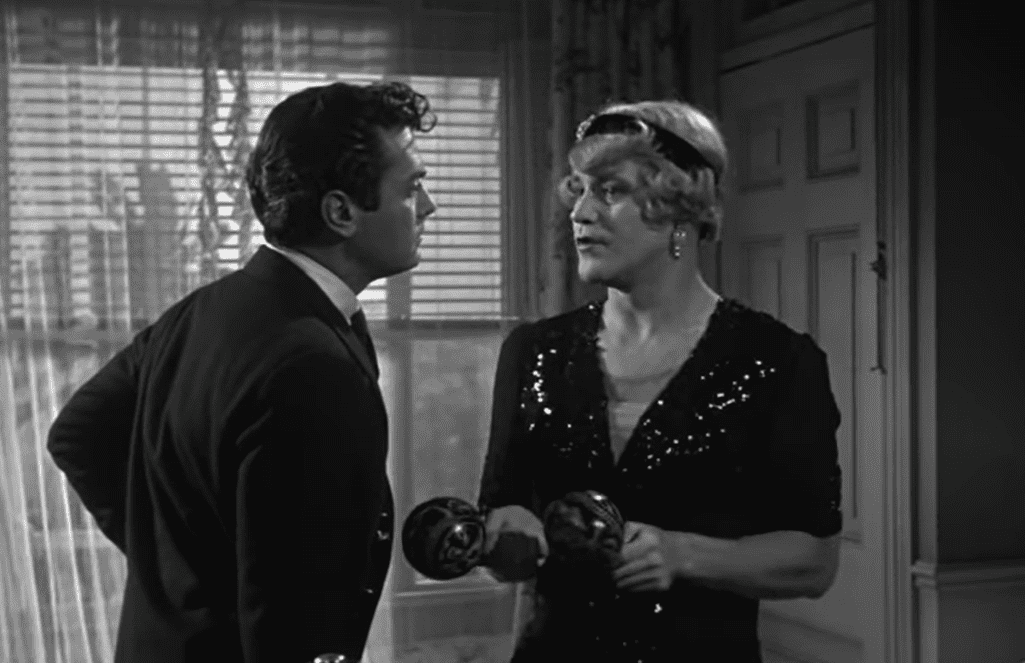 Some like it hot (1959), Paramount Pictures
Some like it hot (1959), Paramount Pictures
26. He Forgave Marilyn Monroe
Marilyn Monroe’s antics on the set of Some Like It Hot are legendary. She was late, she didn’t know her lines, and—most infamously—once took nearly 50 takes to say: "It's me, Sugar". While Curtis was notoriously cruel to Monroe about these failings, Lemmon was unfailingly supportive, saying, "She knew she was limited and...knew what was right for Marilyn", in reference to her difficulties preparing to face the camera.
Messed-up lines or not, Some Like It Hot was an immediate critical and box office success. Lemmon was bigger than ever before...but that only meant it was a long way down.
27. He Got Serious
At this point, Lemmon's comedic chops were common knowledge, but he was starting to get antsy about getting typecast. To remedy this situation, he signed up for the 1962 drama Days of Wine and Roses. His risk didn't pay off at first. The serious film followed a self-destructive couple addicted to booze, and the change of Lemmon's tone sent about 40 couples storming out of the cinema during a preview screening.
Still, they couldn't have known the depths Lemmon had sunk to in order to prepare for his role.
 Days of Wine and Roses (1962), Warner Bros.
Days of Wine and Roses (1962), Warner Bros.
28. He Had A Sobering Moment
When he got the part in Days of Wine and Roses, Lemmon wanted to see the real lives of people with addiction issues, so he spent a few evenings observing the "dry-out" rooms at Lincoln Heights correctional facility. The time he spent there was frightening for Lemmon, especially watching people suffering from alcohol withdrawal.
Evidently, this experience stayed with him, because it caused a horrific moment on set.
29. He Lost His Mind
In one scene in Days of Wine and Roses, Lemmon's character is in a sanitarium, in a straitjacket. It got scary, very fast. Lemmon got so into portraying a man going through withdrawal that he began to go into hysterics, and the crew had to shake him back to the present moment. In the end though, like so many of Lemmon's gambles, he won big.
 Days of Wine and Roses (1962), Warner Bros.
Days of Wine and Roses (1962), Warner Bros.
30. He Was Versatile On Film
When Days of Wine and Roses came out, the critics tripped over each other giving praise for both Lemmon and his co-star Lee Remick, and they both received nominations for Academy Awards. It was official: Lemmon could do both drama and comedy. There was nothing stopping him now. Nothing, that is, except his personal life.
 Days of Wine and Roses (1962), Warner Bros.
Days of Wine and Roses (1962), Warner Bros.
31. His Family Life Suffered
Lemmon’s career was clearly going to be long-lasting, but his marriage—not so much. He and his wife Cynthia Stone called it quits even after having a son together. In 1962, Lemmon tried marriage again with Felicia Farr, having a daughter with her four years later in 1966. Unfortunately, the year of his marriage also started a downward spiral in Lemmon's home life.
32. He Made A Gruesome Discovery
In 1962, Lemmon’s father passed, and suddenly his frequently fragile mother Millie was more vulnerable than ever. For years, he tried to support her as best he could. But one day, it all came crashing down. In 1967, Lemmon had a date to spend the day with his mother, wife, and daughter. Yet when they turned up at his mother’s apartment, there was no answer at the door.
In a panic, Lemmon forced his way into the apartment. What he saw shook him to his core: His lifeless mother dressed perfectly for a day with her best boy. Doctors said that the cause was heart failure. With both parents now gone, Lemmon threw himself into work...for better or for worse.
33. He Had A Passion Project
By the 1970s, Lemmon had appeared in countless films, and decided it was time for a passion project. He began lobbying Paramount to help him make Save the Tiger, a "message movie" about the crumbling American Dream. After two years of Lemmon's requests, the studio finally agreed, with one stipulation: it had to cost less than one million dollars.
The ball was back in Lemmon’s court—what would he do?
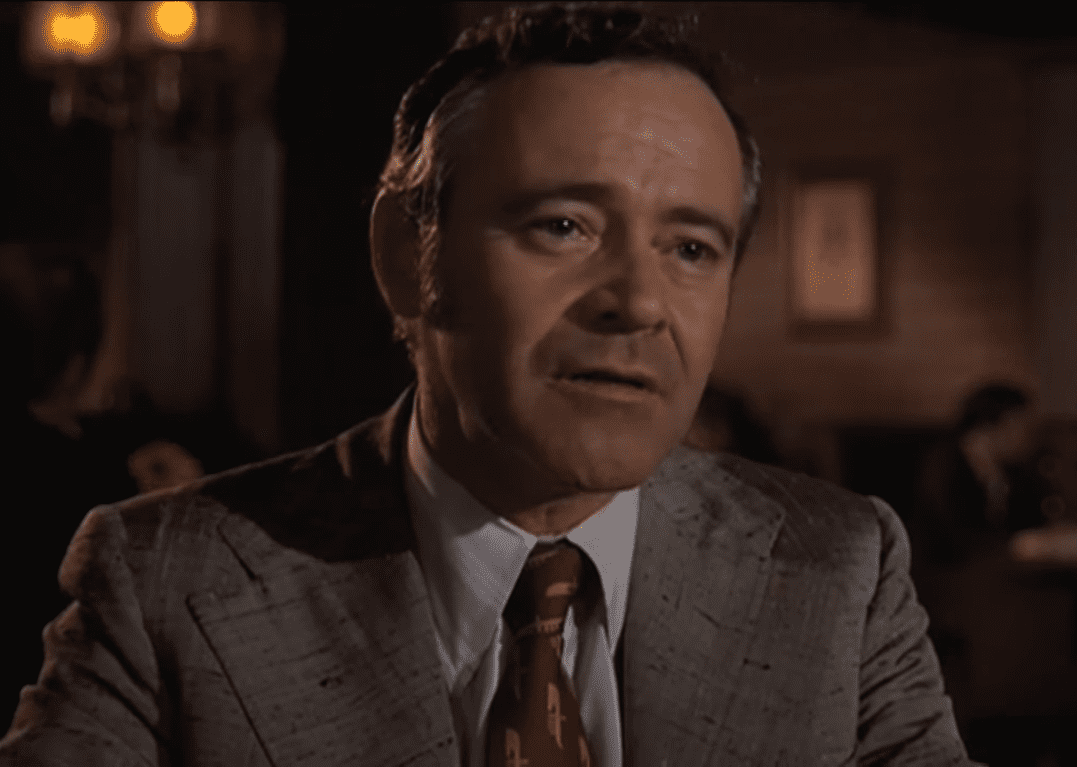 Save the Tiger (1973), Paramount Pictures
Save the Tiger (1973), Paramount Pictures
34. He Made A Big Sacrifice
Lemmon was so convinced that he could make Save the Tiger into a great film he did something drastic—he took a huge pay cut. He was in for a huge disappointment. Lemmon may have bet on Save the Tiger being a hit, but what he ended up with was a turkey. Save the Tiger did poorly with audiences, and this showed in the box office receipts.
Yet once again, Jack Lemmon was not a man you should bet against.
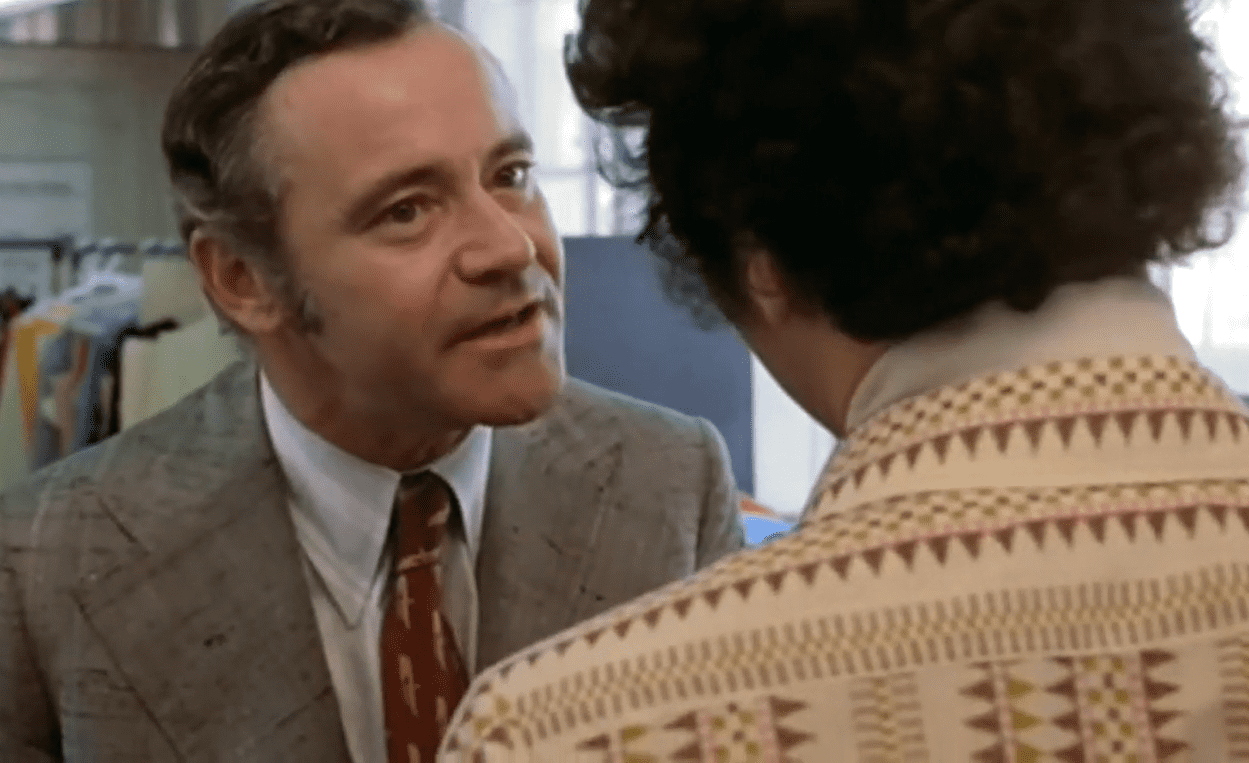 Save the Tiger (1973), Paramount Pictures
Save the Tiger (1973), Paramount Pictures
35. He Found A Niche
Even though Save the Tiger as a whole was a miss, Lemmon’s performance wasn't. As they had so many times before, critics singled him out as the bright spot of the film, and Lemmon won the Academy Award for Best Actor. So now Lemmon had truly nailed playing dramatic roles, but as we'll see, drama was would enter his real life again before it was all over.
36. He Wasn't Good At Everything
One of Lemmon’s non-acting related goals was to make round four of the AT&T Pebble Beach Pro-Am golf tournament. Every February, he would participate as fans cheered him on—plus got a few chuckles from his humor. Every year, Lemmon tried and failed to make the cut. He never did make it, but now there is an award in his name...for the amateur who helps his team the most.
37. He Had An Early Comedy Routine
Lemmon seemed born to entertain, but he got a bizarre start at performing. At age seven, he had a bit he did for his parents’ visitors that involved snoring. For this routine, Lemmon developed 25 different types of snores. Of course, guests at the Lemmon house thought this seven-year-old’s snoring routine was hilarious...but there was something dark underneath Lemmon’s performance.
38. He Knew His Parents' Secret
It turned out that Lemmon created the snoring routine to deal with something serious. See, he couldn’t help but notice that his parents were sleeping in separate beds. Even at age seven, he knew this wasn’t a good sign for a marriage. But when he asked his mother why, she told him it was just because of his dad’s snoring and nothing else.
Young Lemmon saw right through his mother’s answer and used comedy to deal with his anxiety about the instability of his parents' marriage. Separate beds was one thing, and then it just got worse.
39. He Was A Hotel Brat
Not only were Lemmon’s parents sleeping in separate bedrooms, they were often sleeping in different cities. His father took any opportunity at work to go away on business, while his mother took up a daily residence in an unusual place: the Ritz-Carlton Hotel. His parents never actually argued in front of Lemmon, but even as a child he knew they were struggling as a couple.
Everyone in the Lemmon family was trying to act like things were okay. But before long, fake happiness turned to tragedy.
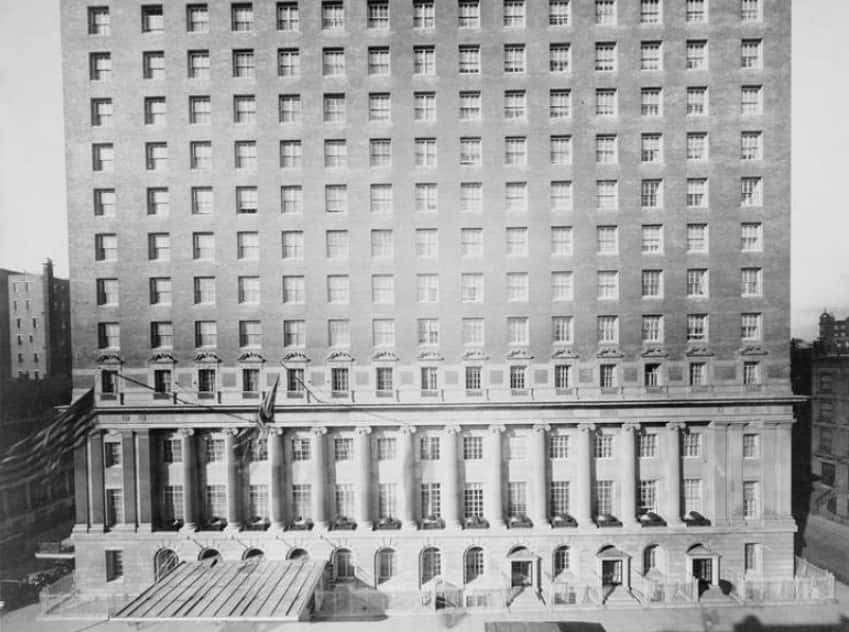 Picryl
Picryl
40. His Childhood Was A Lie
As a child, Lemmon got it into his head that his behavior may have an effect on his parent’s failing marriage. He thought that if he always acted happy and didn’t create problems, his parents would stay together. Even though his logic was flawed, it kind of worked. His parents never did divorce, only separating when he was 18 years old.
Still, these trials turned Lemmon into an almost pathologically happy kid. Well, at least he looked happy—something else was going on under the surface.
41. He Wasn’t Well
By the time Lemmon was 12 years old, he’d done something remarkable. He spent an astonishing total of two years in the hospital, both for general ill health and problems with his hearing; he had three operations on his ears alone. In spite of these health problems, Lemmon went on to become the legendary comedian we knew him as.
42. He Was The College Bad Boy
Lemmon attended Harvard College and did something few successful people do: not much. To make up for his slacking in academics, Lemmon focused on track sports and acting. At one point, however, his grades were so poor that the school put him on probation. No big deal, except now Lemmon couldn't participate in any theatrical productions.
He may have been unexceptional, but he came up with an ingenious way around this rule.
43. He Hid His Name
Even though the school forbade Lemmon from acting, he found a way to do it anyway. Lemmon decided that if he wasn’t himself, he could still perform. He came up with a pseudonym to still get on the stage. Lemmon, always the comedian, called himself Timothy Orange. What happened next to Lemmon, however, was no laughing matter.
44. There Was A Setback
Eventually, Lemmon transferred from Harvard College to the Navy College Training Program. Unfortunately for him, something unexpected happened. WWII broke out. Luckily, he didn’t encounter any actual battle, but the worldwide conflict did set his career back. So once he finally got his degree, he decided to make his way directly toward doing something that he really cared about: acting.
But Lemmon’s father had other plans for him.
45. He Didn’t Follow Along
Lemmon’s father had always been in the baking business and thought his son would do well following in his footsteps. Lemmon had to disappoint him, but get this: Instead of dad being furious, he handed Lemmon $300 and wished him a happy future. WWII and his own father hadn’t stopped Lemmon’s trajectory to stardom, so it's no wonder he lasted as long as he did.
46. It Became All Too Real
In 1962, Lemmon had wonderfully portrayed a man with an addiction to booze in Days of Wine and Roses. In 1974, his own demons came out. Lemmon was giving an award to friend James Cagney, and his words were downright incoherent. When people confronted him, Lemmon sheepishly and unconvincingly blamed a combination of medication and drink.
It didn’t help that two years later, officers took Lemmon in for driving while inebriated. Clearly, Lemmon had a problem that he wasn’t owning up to. It would take years for him to reveal the whole truth.
47. He Went Full-On Dramatic
In spite of his drinking problem, Lemmon continued with dramas, and they continued to bring him success. He received another Best Actor nomination for the 1979 disaster film The China Syndrome, and his final Oscar consideration was for the 1982 political drama Missing. Even so, Lemmon wanted to make a comeback into comedy. It couldn't have gone worse.
 The China Syndrome (1979), Columbia Pictures
The China Syndrome (1979), Columbia Pictures
48. He Made A Truly Horrible Movie
Back in the late 1960s, Lemmon made a few hit comedies with funny man Walter Matthau, and reunited with him in 1981's Buddy Buddy. It was all set to be a triumph, with Billy Wilder returning to direct Lemmon. Instead, it was a huge flop. Roger Ebert said that Buddy Buddy was a comedy with no laughs. Gene Siskel simply said it was the worst film of the year.
Lemmon was used to everything coming up roses. So while Buddy Buddy threw him for a loop, he refused to go out with a whimper.
49. He Had A Comeback
After a few more miserable attempts at movies, Lemmon eventually turned to television. It proved to be the answer to his ills. In 1997, he got a role in a TV remake of Twelve Angry Men, portraying the main juror who argues for clemency in the trial. Audiences loved him, and the Golden Globes nominated him for Best Actor in a television movie.
And when awards night came, the completely unexpected happened.
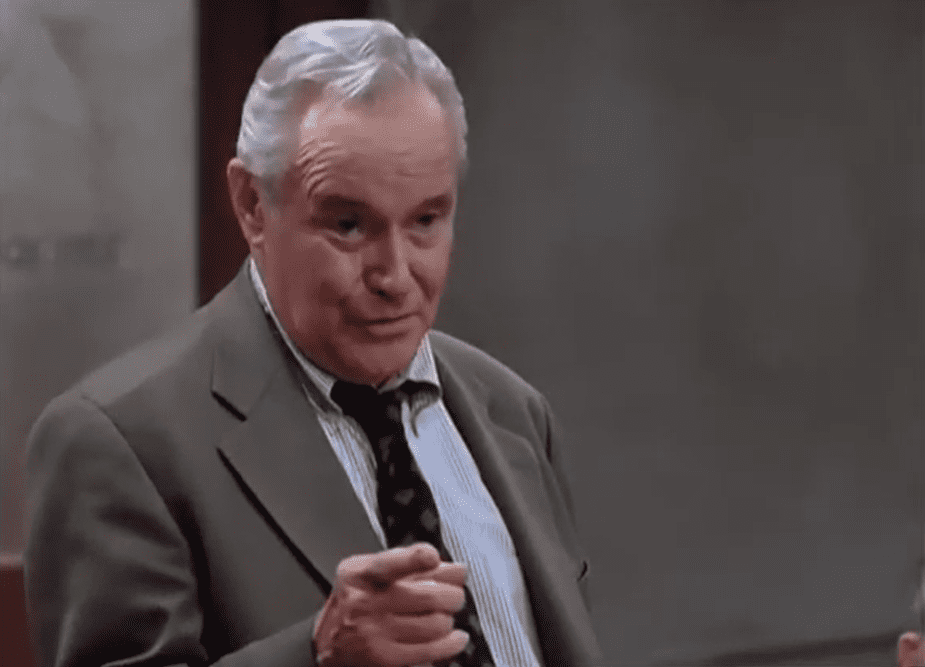 12 Angry Men (1997), Showtime Networks
12 Angry Men (1997), Showtime Networks
50. He Had A Famous Fan
On awards night, the Golden Globe didn’t go to Lemmon, but instead to Ving Rhames for Don King: Only in America. However, once Rhames took the mic, he very emotionally called for Lemmon to join him on stage. An equally emotional Lemmon obliged—and Rhames then handed over the award he had just won to the veteran actor, amidst standing ovations from the crowd.
51. He Rests With Friends
On June 27, 2001, 76-year-old Jack Lemmon passed. But there was one thing he admitted before the end. He finally owned up to having a drinking problem, and confessed that he had dealt with it privately in the intervening years. Lemmon's remains are now in Westwood Village Memorial Park Cemetery, nearby his friends Billy Wilder, Walter Matthau, and Marilyn Monroe.

